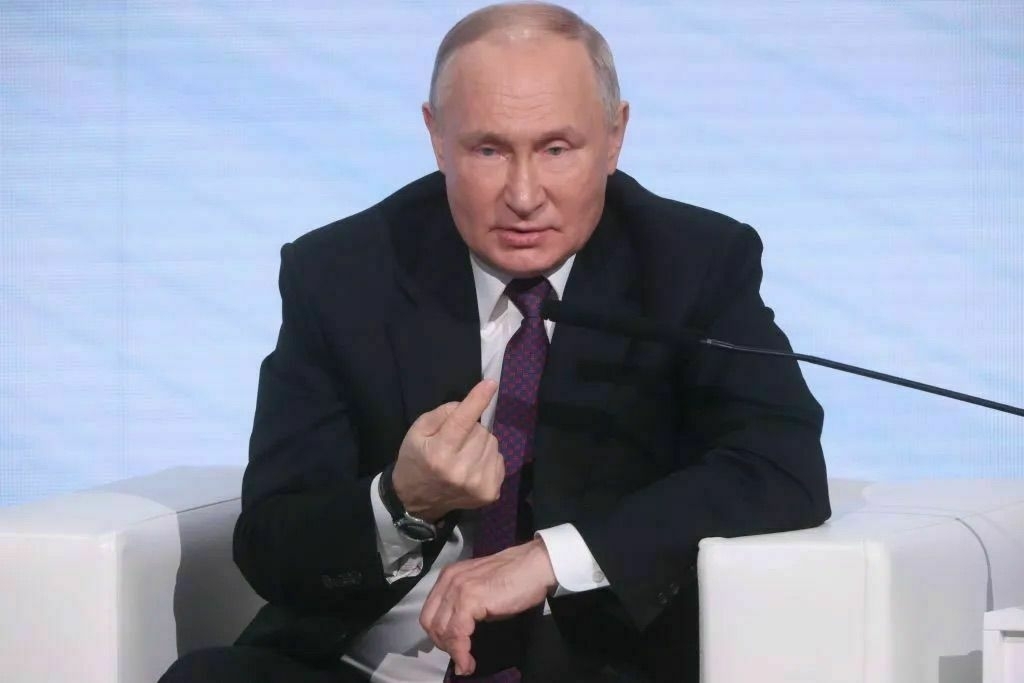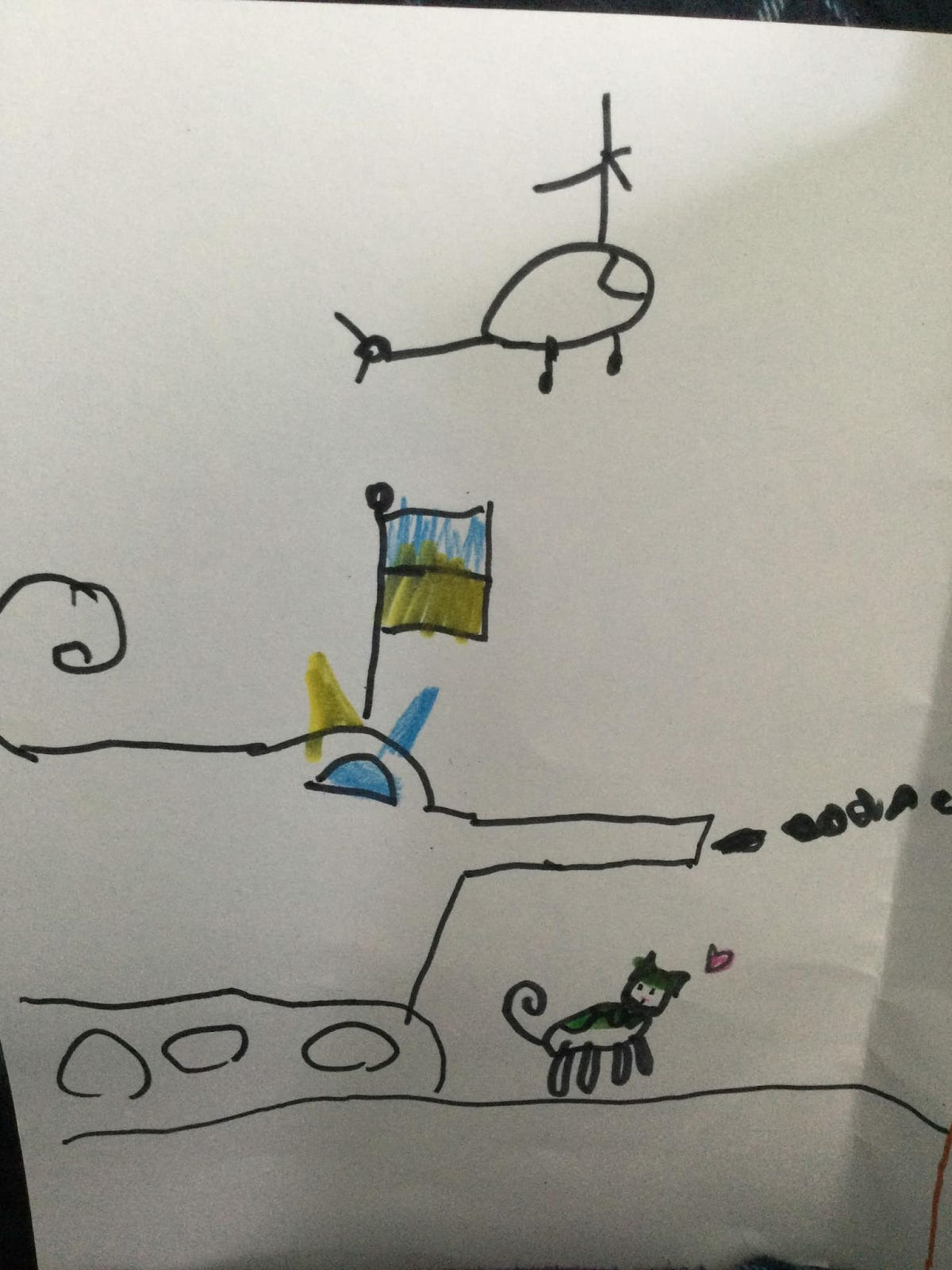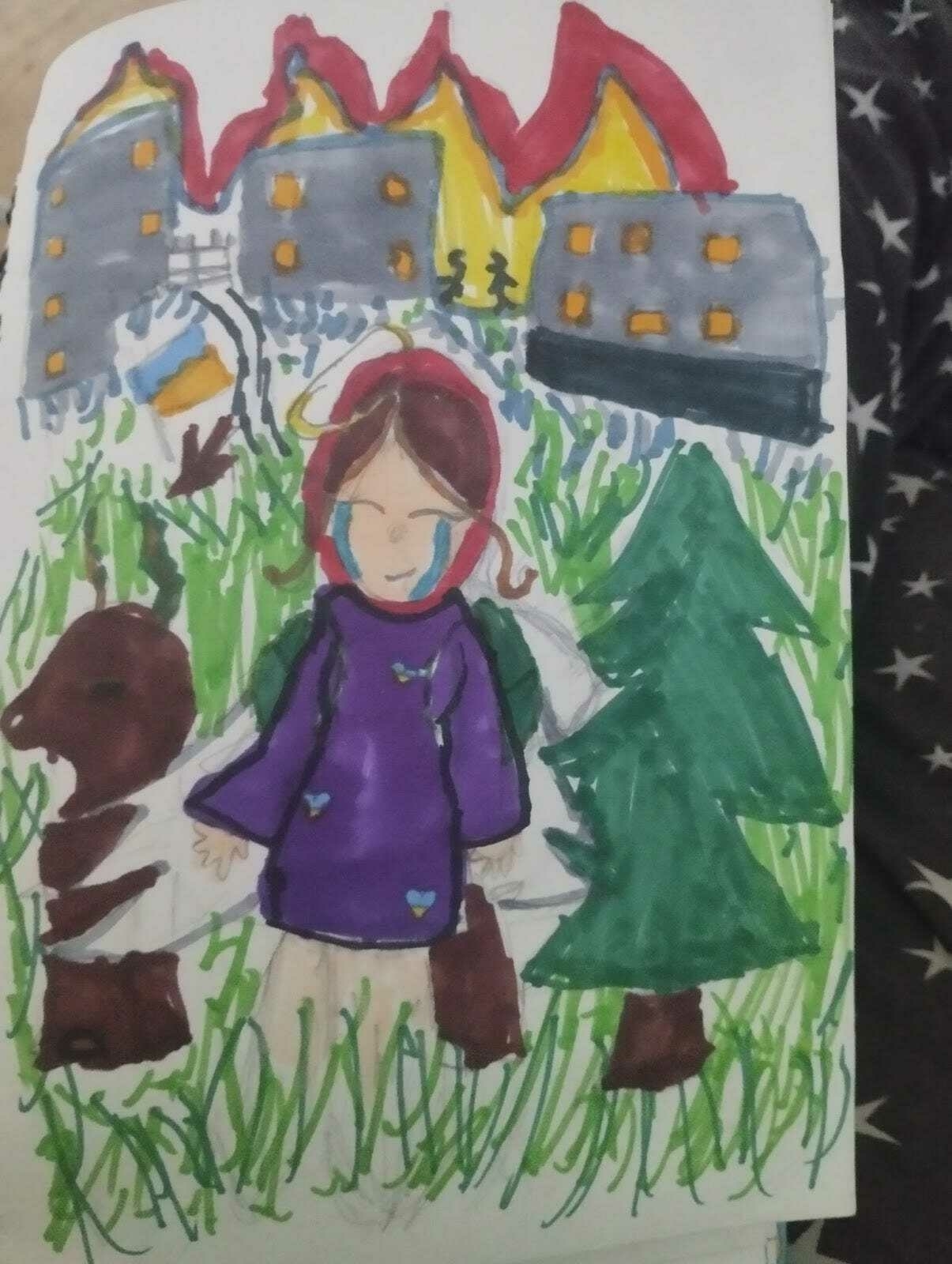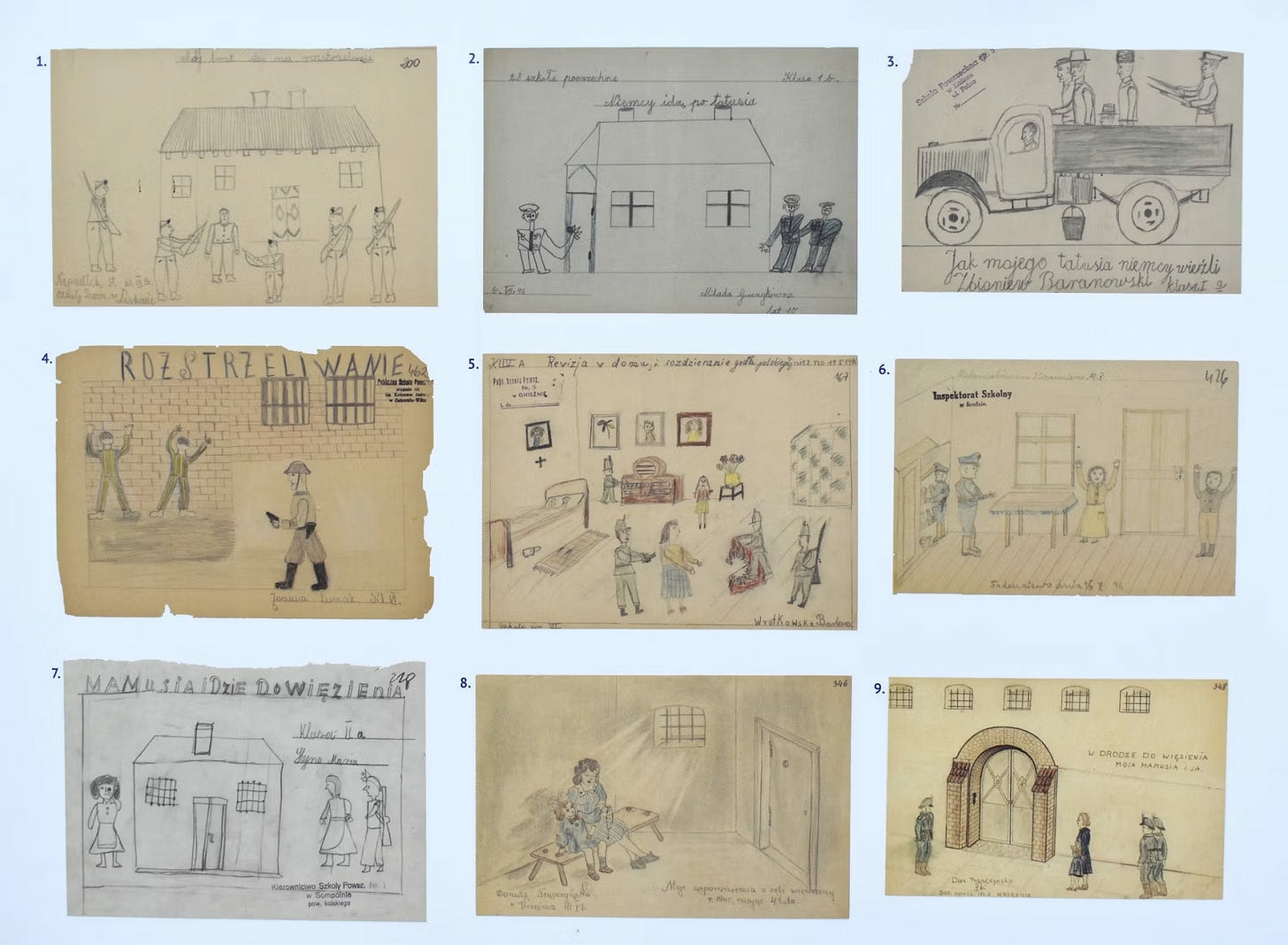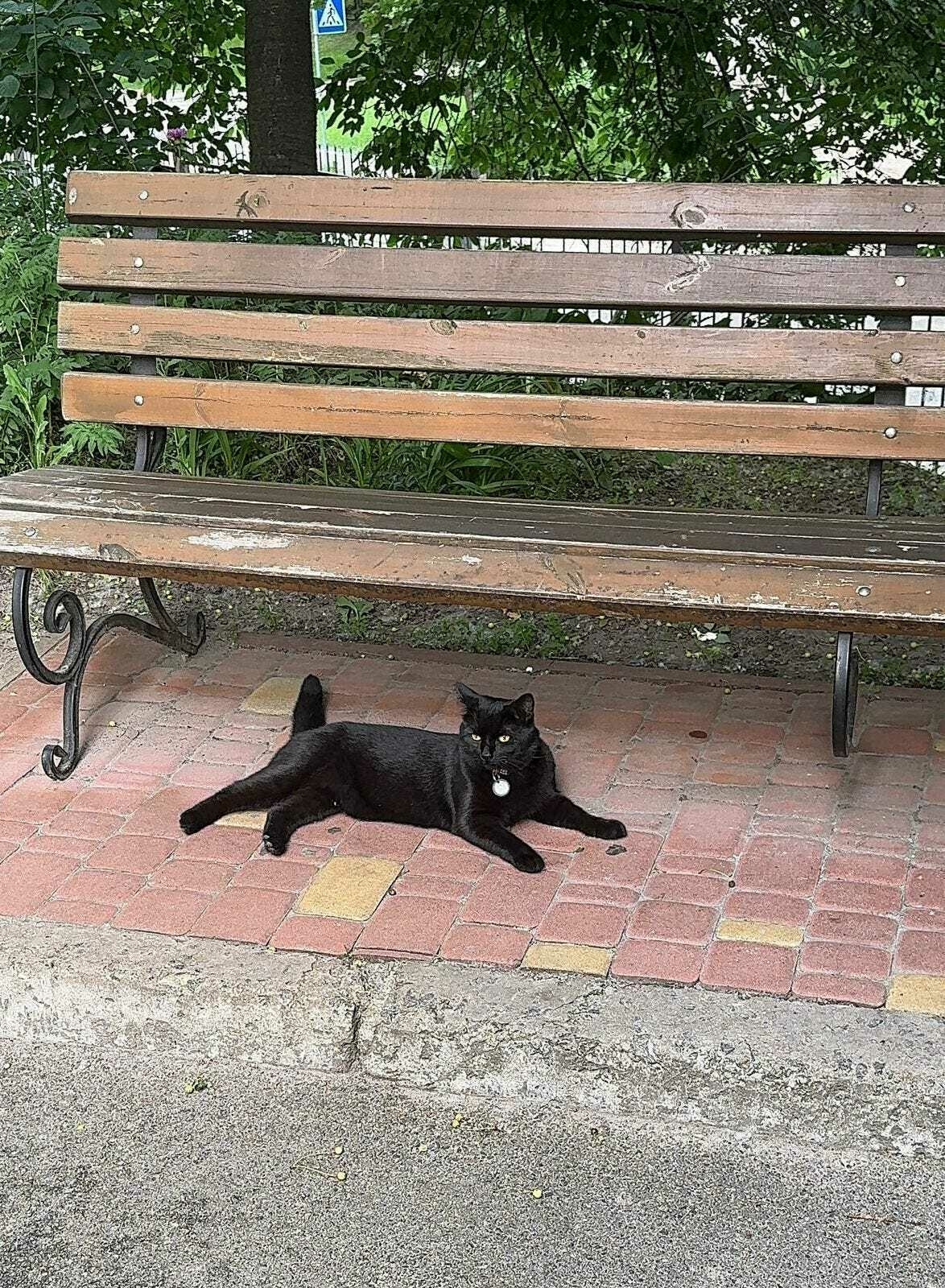-
Ukraine war latest: Ukraine strikes Russian missile base in Bryansk Oblast, damages Iskander launchers; Trump dismisses timeline to impose Russian sanctions
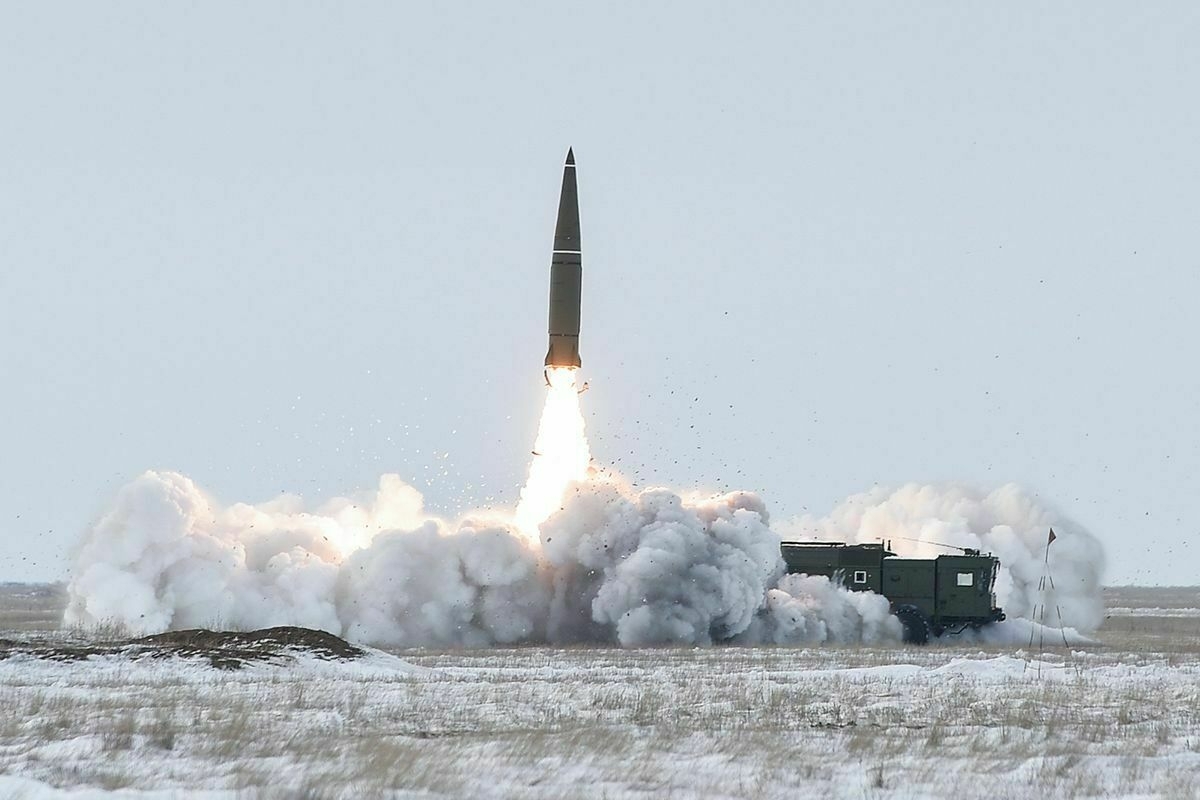
Key developments on June 5:
- Ukraine strikes Russian missile base in Bryansk Oblast, damages Iskander launchers, Ukrainian military says
- ‘Deadline is in my brain’ — Trump dismisses timeline to impose Russian sanctions
- ‘Not destroyed but damaged’ — Russia claims it will repair bombers struck in Operation Spiderweb
- Trump privately praises Ukraine’s drone strike on Russian bombers as ‘badass,’ Axios reports
- 5 killed, 9 injured in Russian drone strike on Chernihiv Oblast
Ukrainian forces launched a missile strike on June 5 targeting a concentration of Russian missile troops near the city of Klintsy in Russia’s Bryansk Oblast, the General Staff of Ukraine’s Armed Forces reported.
The strike reportedly destroyed one Iskander missile launcher and seriously damaged two others. The targeted unit, part of Russia’s 26th Missile Brigade, had attempted to fire on Ukrainian territory — likely aiming at Kyiv — before it was hit, according to the military.
“Thanks to effective reconnaissance and the coordinated efforts of the Armed Forces and the Security Service of Ukraine, the targets were successfully hit,” the General Staff said.
The agency added that there were no civilian casualties, and assessments of Russian losses are ongoing.
The Iskander is a short-range ballistic missile system used by Russia for precision strikes against military and infrastructure targets.
With a range of up to 500 kilometers (some 311 miles) and the ability to carry conventional or nuclear warheads, the system remains a key component of Russia's tactical missile forces.
Bryansk Oblast lies just northeast of Ukraine's Chernihiv and Sumy Oblasts, making it one of the key Russian regions bordering northern Ukraine.
The strike came as part of Ukraine's broader effort to degrade Russia's offensive capabilities.
On the same night, Russia launched 103 drones — including Iranian-designed Shahed suicide drones — and one Iskander-M ballistic missile against Ukrainian territory.
Targeting missile assets there may disrupt Russia's ability to launch precision strikes, particularly in advance of an anticipated new summer offensive.
Russia’s response to Operation Spiderweb is likely ‘not going to be pretty,’ Trump saysU.S. President Donald Trump warned on June 5 that Russia’s response to Ukraine’s Operation Spiderweb is likely “not going to be pretty,” following a phone call with Russian President Vladimir Putin the day prior.The Kyiv IndependentDmytro Basmat
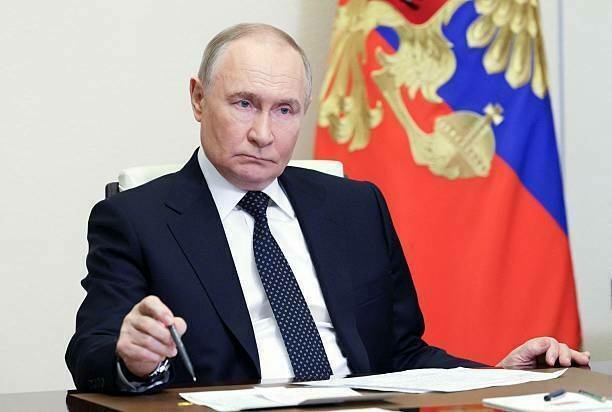
'Deadline is in my brain' — Trump dismisses timeline to impose Russian sanctionsU.S. President Donald Trump sidestepped questions on June 5 as to when he can be expected to impose additional sanctions on Russia, as the Kremlin continues to reject a ceasefire in Ukraine.
Trump has repeatedly threatened to impose sanctions on Russia if he does not see progress in peace talks between Kyiv and Moscow.
When asked by reporters in the Oval Office as to whether a deadline exists for the implementation of sanction, Trump replied: "Yes, it's in my brain the deadline," without specifying a date.
"When I see the moment where it's not going to stop... we'll be very tough," Trump added.
Previously, Trump said he had not yet imposed new sanctions on Russia because he believed a peace deal might be within reach.
"If I think I'm close to getting a deal, I don't want to screw it up by doing that," he said, but added he is prepared to act if Moscow stalls further.
On May 28, Trump said that "It'll take about two weeks, or week and a half," to know whether Russian President Vladimir Putin is serious about ending the war in Ukraine, suggesting that sanctions may be on the horizon if efforts are stalled.
Despite two rounds of peace talks in Istanbul, Russia continues to reject a ceasefire in Ukraine.
Following Operation Spiderweb that pre-empted the peace talks, Putin on June 4 blamed Ukraine’s top leadership for the attacks: "The current Kyiv regime does not need peace at all," he said during a televised meeting with senior officials. "What is there to talk about? How can we negotiate with those who rely on terror?"
Republican Senator Roger Wicker said on June 4 that Trump asked the Senate to delay voting on a bipartisan Russia sanctions bill.
The bill, introduced on April 1 by Senators Lindsey Graham (R) and Richard Blumenthal (D), seeks to impose a 500% tariff on imports from countries that continue purchasing Russian oil and raw materials.
The legislation currently has broad bipartisan support, with 82 out of 100 U.S. senators backing it. U.S. House Speaker Mike Johnson also voiced his support for the bill.
Trump on June 5 said that he has not yet seen the bipartisan bill.
"I have to take a look. (Senators) are waiting for me to decide what to do. And I will decide. Maybe very soon," Trump said. "But (senators) will be guided by my instructions. That's how it should be."
‘Time to put an end to insanity of war,’ Brazil’s Lula told Putin, calls for restraint following Operation Spiderweb“I said (to Putin) it’s time to open our eyes and to put an end to the insanity of war, which destroys everything and builds nothing,” Brazilian President Lula da Silva told reporters during a visit to France.The Kyiv IndependentDmytro Basmat
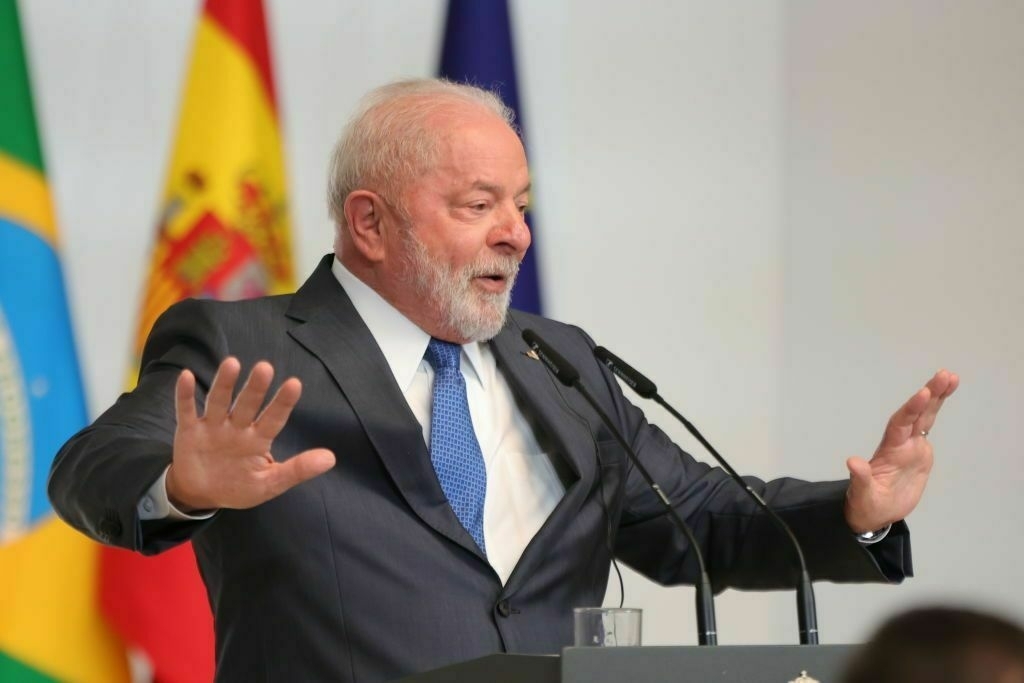
'Not destroyed but damaged' — Russia claims it will repair bombers struck in Operation SpiderwebRussia’s Deputy Foreign Minister Sergei Ryabkov claimed on June 5 that Russian bombers damaged during Ukraine's Operation Spiderweb will be "restored," adding that the planes were not completely destroyed in the attack.
"The equipment in question, as was also stated by representatives of the Ministry of Defence, was not destroyed but damaged. It will be restored," Ryabkov told Russian-state media outlet TASS.
Ukraine on June 1 launched a game-changing drone attack on four key Russian military airfields, damaging 41 planes, including heavy bombers and rare A-50 spy planes. Kyiv has claimed it had disabled 34% of Russia's strategic bomber fleet in what is seen as one of the most daring operations during the full-scale war.
Two U.S. officials told Reuters on June 4 that Ukraine struck as many as 20 Russian military aircraft during Operation Spiderweb, destroying around 10 of them — a claim that stands in contrast with the SBU's estimates.
Independent confirmation of the damage caused is so far limited to satellite images of Belaya air base, which appear to confirm the destruction of at least three Tu-95MS strategic bombers and one Tu-22M3 aircraft, with an additional Tu-95MS visibly damaged.
Another image shows two more likely destroyed Tu-22M3 bombers on the field.
Ryabkov did not specify a timeline as to how quickly the country can allegedly repair the damaged aircraft. In addition to supply-chain challenges brought upon economic sanctions, Russia would also likely face challenges due to the complexities of Soviet-era technology present in the aircraft, if it were to attempt to restore the bombers.
President Volodymyr Zelensky said on June 4 that roughly half of the planes damaged will be impossible to repair, while others will require significant time to be put back into service.
During a phone call with Russian President Vladimir Putin on June 4, U.S. President Donald Trump said that Putin vowed that Moscow "will have to respond" to the attack.
Russian officials have made few public acknowledgements of the attack. Kremlin spokesperson Dmitry Peskov said on June 5 that Moscow will respond when and how the military deems necessary.
Trump privately praises Ukraine's drone strike on Russian bombers as 'badass,' Axios reportsU.S. President Donald Trump privately described Ukraine's drone strike on Russian strategic bombers as "strong" and "badass," Axios reported June 5, citing sources familiar with his reaction.
"He thought it was badass," one source told Axios.
A second said Trump told a confidant the strike was "pretty strong."
One of Trump's advisers reportedly likened the situation to a small but aggressive force managing to hurt a more powerful opponent, using a metaphor about a "chihuahua" attacking "a much bigger dog."
While Russian propagandists have attempted to downplay the strike, Putin himself has yet to make a public statement.
Operation Spiderweb marks one of the most far-reaching Ukrainian operations of the war and underscores Kyiv's expanding capacity to strike targets far beyond the front lines.
Putin rejects Zelensky’s call for peace talks, accuses Ukraine of deadly bridge attack in RussiaRussian President Vladimir Putin on June 4 accused Ukraine of being governed by a terrorist regime that deliberately targets civilians and claimed it is continuing to lose the war. He rejected the possibility of holding talks.The Kyiv IndependentOlena Goncharova
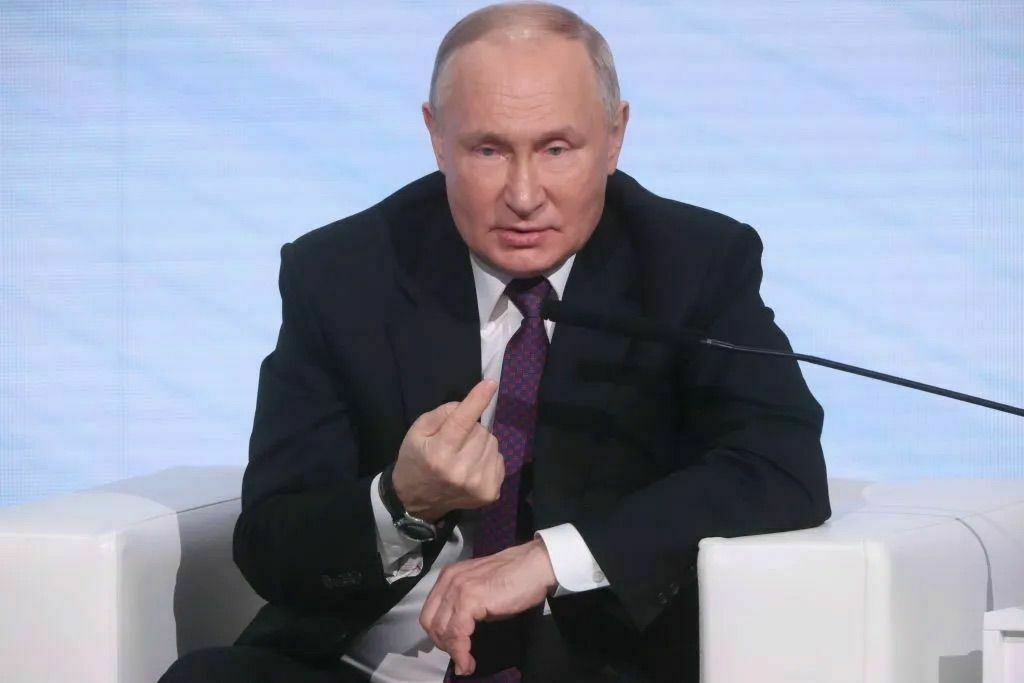
5 killed, 9 injured in Russian drone strike on Chernihiv Oblast
A Russian drone strike on the northern Ukrainian city of Pryluky overnight on June 5 killed at least five civilians, including a one-year-old child, and injured nine others, Ukraine's State Emergency Service reported.The attack, which hit residential neighborhoods, sparked large fires and left multiple homes in ruins. Chernihiv Oblast Governor Viacheslav Chaus said at least six Iranian-designed Shahed-136 drones were used in the assault.
"Five deaths have been confirmed so far, including two women and a one-year-old child who were found under the rubble," Chaus said. "Police, rescuers, and other emergency services are working at the sites of enemy strikes."
Emergency crews worked through the night to extinguish the fires. The State Emergency Service said the strike completely destroyed two residential buildings, two garages, a farm building, and a car.
Chaus added that six people were hospitalized and are receiving urgent care. According to the State Emergency Service, a 5-year-old child was injured in the attack.
Pryluky, located in Chernihiv Oblast, lies in northern Ukraine near the border with Russia and Belarus. Before Russia's full-scale invasion, it had a population of roughly 51,500.
The deadly attack is part of a broader campaign of drone and missile strikes by Russia targeting civilian infrastructure across Ukraine.
Ukraine's northern regions, including Chernihiv, have been targeted in recent weeks as Russian forces escalate their air campaign despite mounting international calls for a ceasefire.
Russian missile, drone attack on Kharkiv injures 17, including 4 childrenRussian missile and drone attacks on the city of Kharkiv overnight on June 5 injured 17 people, including four children, regional Governor Oleh Syniehubov reported.The Kyiv IndependentDmytro Basmat
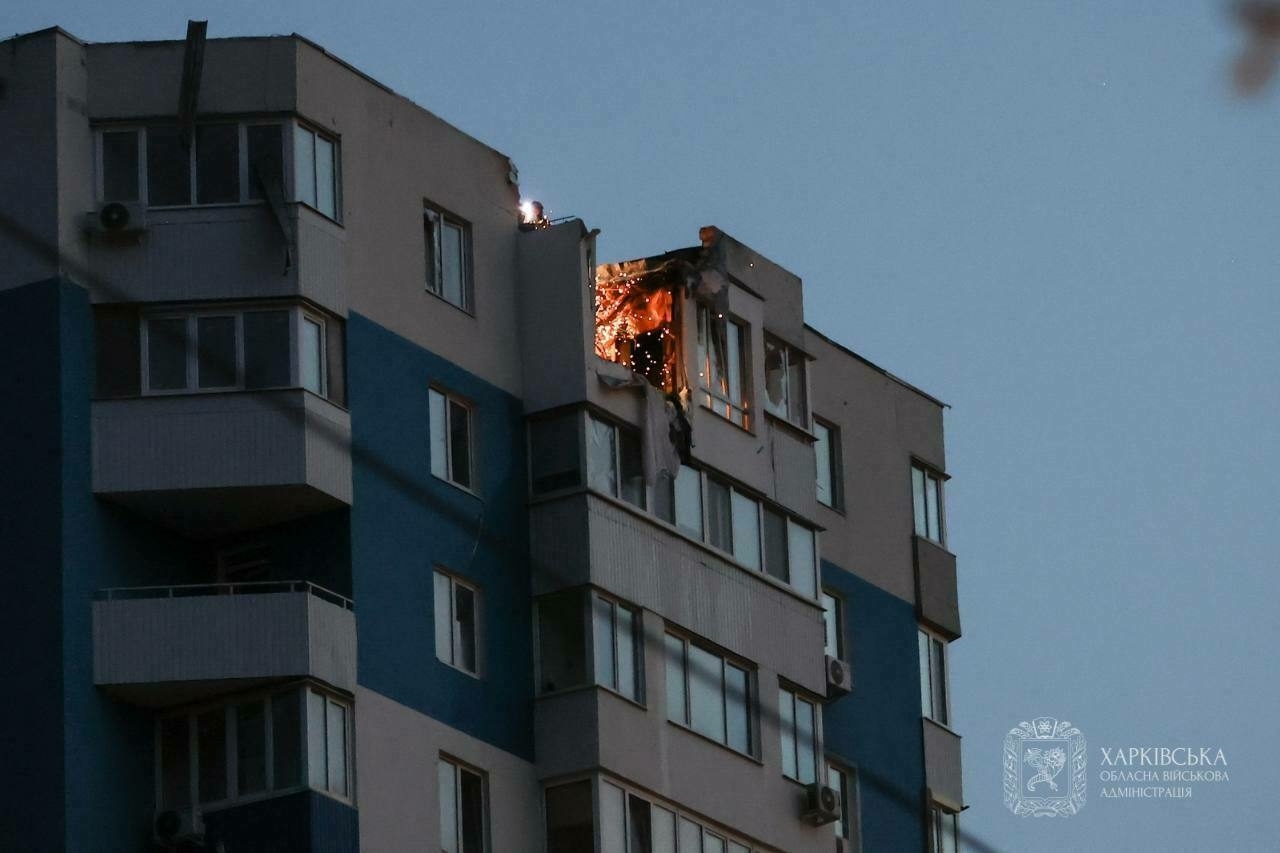
-
Russia's response to Operation Spiderweb is likely 'not going to be pretty,' Trump says
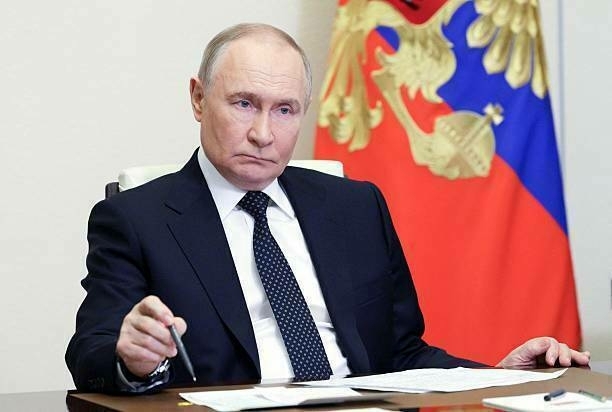
U.S. President Donald Trump warned on June 5 that Russia’s response to Ukraine’s Operation Spiderweb is likely “not going to be pretty,” following a phone call with Russian President Vladimir Putin the day prior.
Trump previously said he spoke to Putin over the phone for approximately an hour and 15 minutes on June 4.
“It was a good conversation, but not a conversation that will lead to immediate peace. President Putin did say, and very strongly, that he will have to respond to the recent attack on the airfields,” Trump said at the time.
Ukraine on June 1 launched a game-changing drone attack on four key Russian military airfields, damaging 41 planes, including heavy bombers and rare A-50 spy planes. Kyiv has claimed it had disabled 34% of Russia’s strategic bomber fleet in what is seen as one of the most daring operations during the full-scale war.
The operation, dubbed Spiderweb, took 18 months to plan and was overseen directly by President Volodymyr Zelensky and carried out by the Security Service of Ukraine (SBU). The SBU said 117 drones, launched from concealed trucks positioned across Russian territory, simultaneously struck airfields in at least four regions — including sites thousands of kilometers from the Ukrainian border.
“They went deep into Russia and (Putin) actually told me we have no choice but to attack based on that, and it’s probably not going to be pretty,” Trump said.
“I don’t like it, I said don’t do it, you shouldn’t do it, you should stop it,” Trump added.
Putin on June 4 blamed Ukraine’s top leadership for the attacks: “The current Kyiv regime does not need peace at all,” he said during a televised meeting with senior officials. “What is there to talk about? How can we negotiate with those who rely on terror?"
Russian officials have made few public acknowledgements of the attack. Kremlin spokesperson Dmitry Peskov said on June 5 that Moscow will respond when and how the military deems necessary.
‘Time to put an end to insanity of war,’ Brazil’s Lula told Putin, calls for restraint following Operation Spiderweb“I said (to Putin) it’s time to open our eyes and to put an end to the insanity of war, which destroys everything and builds nothing,” Brazilian President Lula da Silva told reporters during a visit to France.The Kyiv IndependentDmytro Basmat
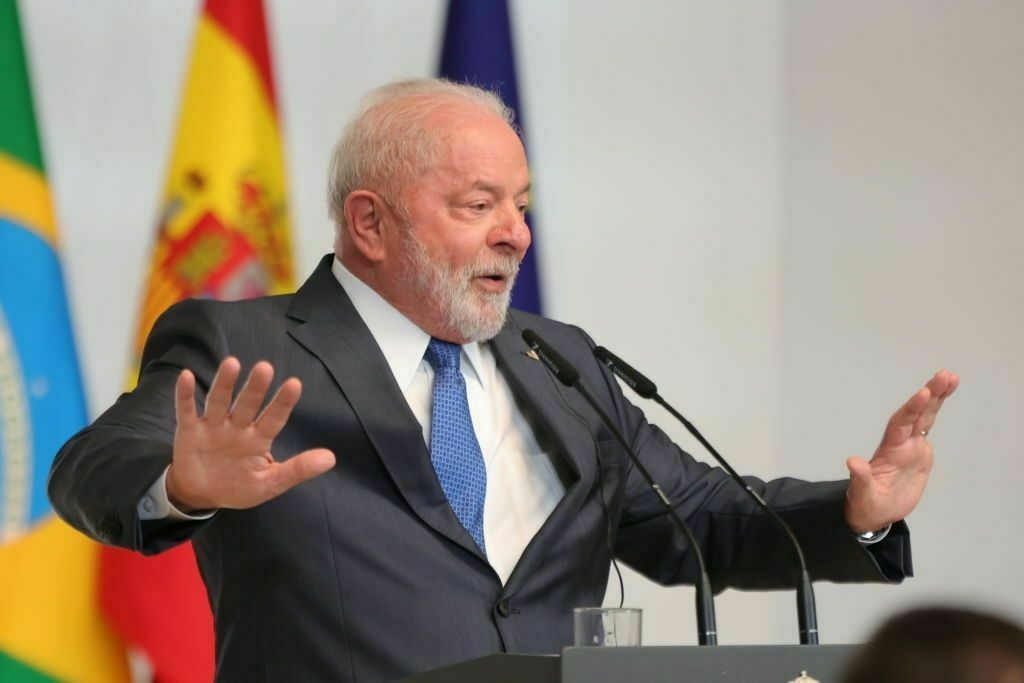
-
'Deadline is in my brain' — Trump dismisses timeline to impose Russian sanctions
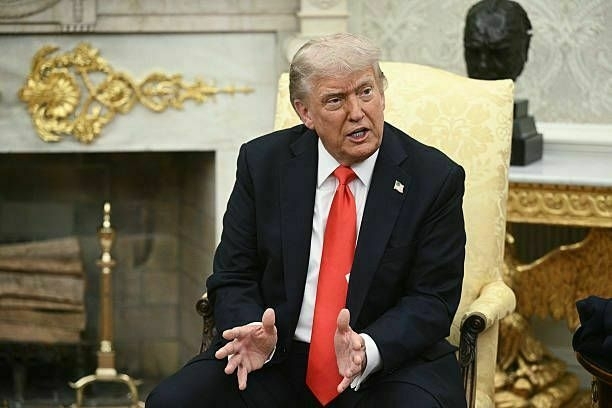
U.S. President Donald Trump sidestepped questions on June 5 as to when he can be expected to impose additional sanctions on Russia, as the Kremlin continues to reject a ceasefire in Ukraine.
Trump has repeatedly threatened to impose sanctions on Russia if he does not see progress in peace talks between Kyiv and Moscow.
When asked by reporters in the Oval Office as to whether a deadline exists for the implementation of sanction, Trump replied: “Yes, it’s in my brain the deadline,” without specifying a date.
“When I see the moment where it’s not going to stop… we’ll be very tough,” Trump added.
Previously, Trump said he had not yet imposed new sanctions on Russia because he believed a peace deal might be within reach.
“If I think I’m close to getting a deal, I don’t want to screw it up by doing that,” he said, but added he is prepared to act if Moscow stalls further.
On May 28, Trump said that “It’ll take about two weeks, or week and a half,” to know whether Russian President Vladimir Putin is serious about ending the war in Ukraine, suggesting that sanctions may be on the horizon if efforts are stalled.
Despite two rounds of peace talks in Istanbul, Russia continues to reject a ceasefire in Ukraine.
Following Operation Spiderweb that pre-empted the peace talks, Putin on June 4 blamed Ukraine’s top leadership for the attacks: “The current Kyiv regime does not need peace at all,” he said during a televised meeting with senior officials. “What is there to talk about? How can we negotiate with those who rely on terror?"
Republican Senator Roger Wicker said on June 4 that Trump asked the Senate to delay voting on a bipartisan Russia sanctions bill.
The bill, introduced on April 1 by Senators Lindsey Graham (R) and Richard Blumenthal (D), seeks to impose a 500% tariff on imports from countries that continue purchasing Russian oil and raw materials.
The legislation currently has broad bipartisan support, with 82 out of 100 U.S. senators backing it. U.S. House Speaker Mike Johnson also voiced his support for the bill.
Trump privately praises Ukraine’s drone strike on Russian bombers as ‘badass,’ Axios reportsWhile Trump has remained silent in public about the attack, he reportedly expressed enthusiasm behind closed doors.The Kyiv IndependentTim Zadorozhnyy
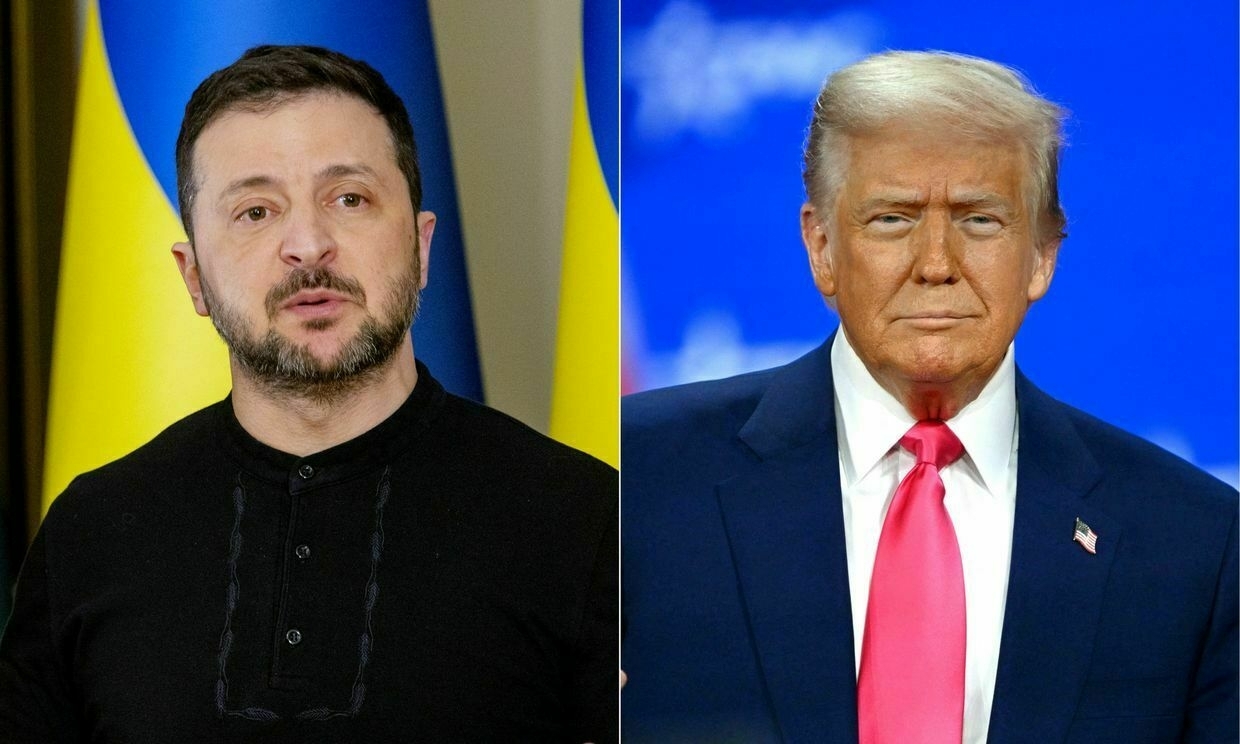
-
'Not destroyed but damaged' — Russia claims it will repair bombers struck in Operation Spiderweb, official says
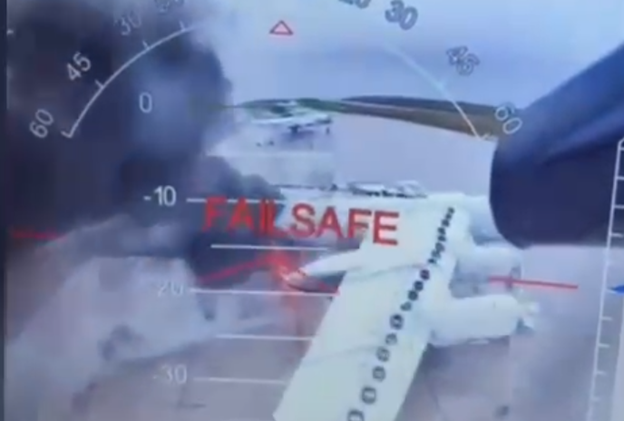
Russia’s Deputy Foreign Minister Sergei Ryabkov claimed on June 5 that Russian bombers damaged during Ukraine’s Operation Spiderweb will be “restored,” adding that the planes were not completely destroyed in the attack.
“The equipment in question, as was also stated by representatives of the Ministry of Defence, was not destroyed but damaged. It will be restored,” Ryabkov told Russian-state media outlet TASS.
Ukraine on June 1 launched a game-changing drone attack on four key Russian military airfields, damaging 41 planes, including heavy bombers and rare A-50 spy planes. Kyiv has claimed it had disabled 34% of Russia’s strategic bomber fleet in what is seen as one of the most daring operations during the full-scale war.
The operation, dubbed Spiderweb, took 18 months to plan and was overseen directly by President Volodymyr Zelensky and carried out by the Security Service of Ukraine (SBU). The SBU said 117 drones, launched from concealed trucks positioned across Russian territory, simultaneously struck airfields in at least four regions — including sites thousands of kilometers from the Ukrainian border.
Two U.S. officials told Reuters on June 4 that Ukraine struck as many as 20 Russian military aircraft during Operation Spiderweb, destroying around 10 of them — a claim that stands in contrast with the SBU’s estimates.
Independent confirmation of the damage caused is so far limited to satellite images of Belaya air base, which appear to confirm the destruction of at least three Tu-95MS strategic bombers and one Tu-22M3 aircraft, with an additional Tu-95MS visibly damaged.
Another image shows two more likely destroyed Tu-22M3 bombers on the field.
Ryabkov did not specify a timeline as to how quickly the country can allegedly repair the damaged aircraft. In addition to supply-chain challenges brought upon economic sanctions, Russia would also likely face challenges due to the complexities of Soviet-era technology present in the aircraft, if it were to attempt to restore the bombers.
President Volodymyr Zelensky said on June 4 that roughly half of the planes damaged will be impossible to repair, while others will require significant time to be put back into service.
During a phone call with Russian President Vladimir Putin on June 4, U.S. President Donald Trump said that Putin vowed that Moscow “will have to respond” to the attack.
Russian officials have made few public acknowledgements of the attack. Kremlin spokesperson Dmitry Peskov said on June 5 that Moscow will respond when and how the military deems necessary.
‘Time to put an end to insanity of war,’ Brazil’s Lula told Putin, calls for restraint following Operation Spiderweb“I said (to Putin) it’s time to open our eyes and to put an end to the insanity of war, which destroys everything and builds nothing,” Brazilian President Lula da Silva told reporters during a visit to France.The Kyiv IndependentDmytro Basmat
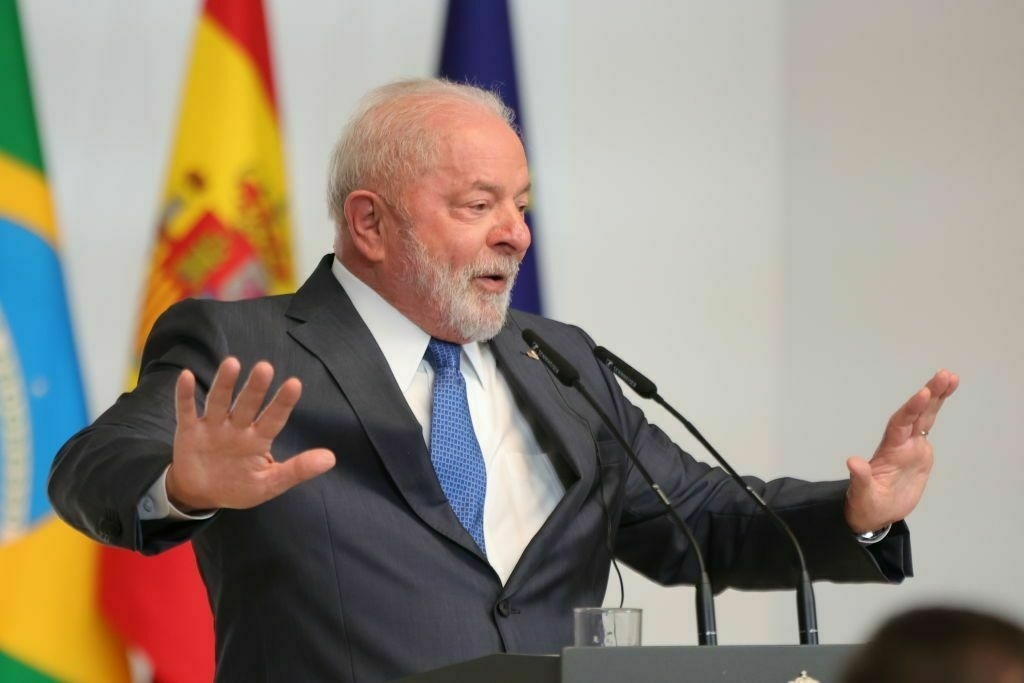
-
'Time to put an end to insanity of war,' Brazil's Lula told Putin, calls for restraint following Operation Spiderweb
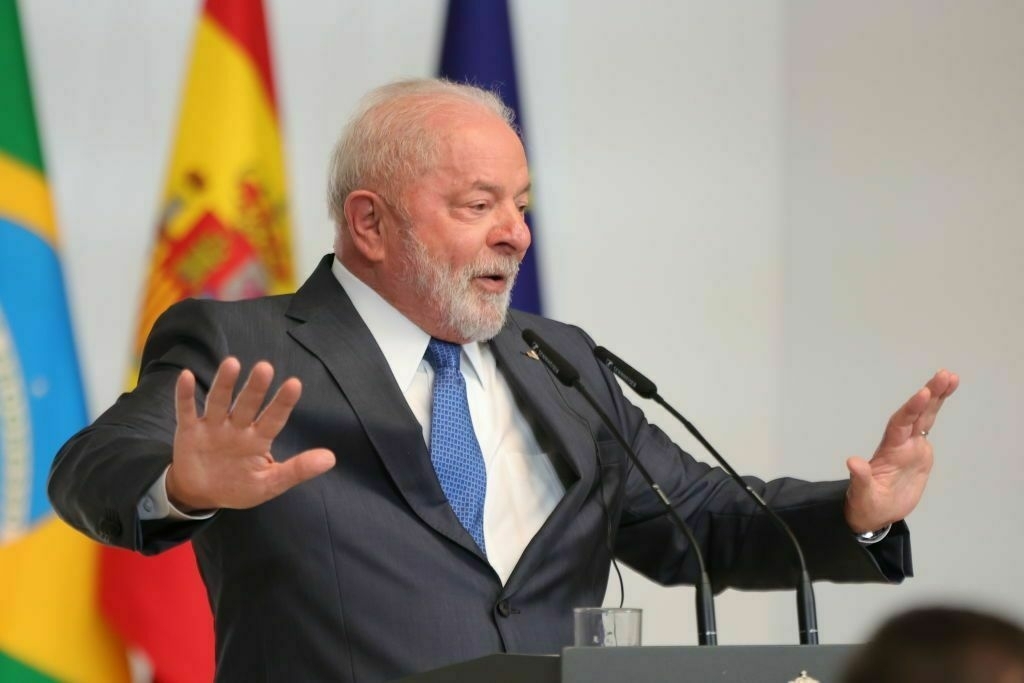
Brazilian President Lula da Silva reiterated calls for peace on June 5, urging Russia to restrain attacks on Ukraine as Russian President Vladimir Putin has vowed to “respond” to Operation Spiderweb.
Ukraine on June 1 launched a game-changing drone attack on four key Russian military airfields, damaging 41 planes, including heavy bombers and rare A-50 spy planes.
The operation, dubbed Spiderweb, took 18 months to plan and was overseen directly by President Volodymyr Zelensky and carried out by the Security Service of Ukraine (SBU). The SBU said 117 drones, launched from concealed trucks positioned across Russian territory, simultaneously struck airfields in at least four regions — including sites thousands of kilometers from the Ukrainian border.
During a phone call with Putin on June 4, U.S. President Donald Trump said that Putin vowed that Moscow “will have to respond” to the attack.
“It was a good conversation, but not a conversation that will lead to immediate peace. President Putin did say, and very strongly, that he will have to respond to the recent attack on the airfields,” Trump said of the call following the conversation with Putin.
“I see that Trump tweeted saying he had discussed this with Ukraine and that things are not looking good, and that Putin had said he would take revenge for this attack on Ukraine,” Lula told reporters, urging restraint on additional attacks.
Lula added that he urged Putin to end the war in Ukraine during a phone call with the Russian president in May that urged Putin to physically attend peace talks in Istanbul. Putin ultimately did not attend peace talks and instead sent a delegation to meet on his behalf.
“I said (to Putin) it’s time to open our eyes and to put an end to the insanity of war, which destroys everything and builds nothing,” Lula told reporters during a visit to France.
Despite two rounds of negotiations, Russia continues to reject a ceasefire in Ukraine.
Putin on June 4 blamed Ukraine’s top leadership for the attacks: “The current Kyiv regime does not need peace at all,” he said during a televised meeting with senior officials. “What is there to talk about? How can we negotiate with those who rely on terror?"
Putin rejects Zelensky’s call for peace talks, accuses Ukraine of deadly bridge attack in RussiaRussian President Vladimir Putin on June 4 accused Ukraine of being governed by a terrorist regime that deliberately targets civilians and claimed it is continuing to lose the war. He rejected the possibility of holding talks.The Kyiv IndependentOlena Goncharova
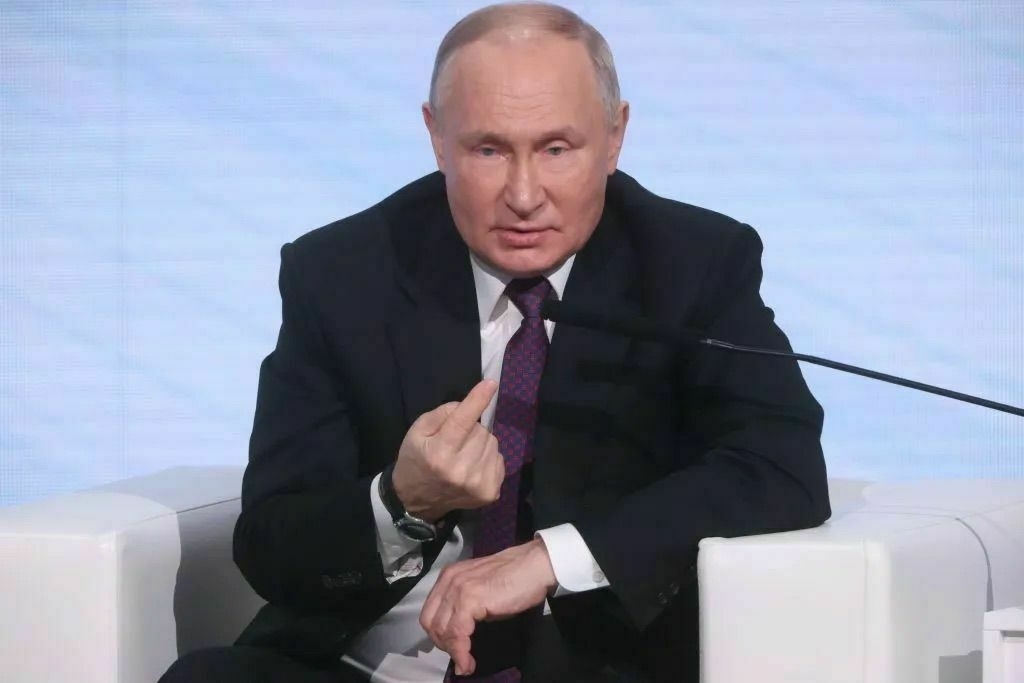
-
In wartime Ukraine, a university grows — and reclaims a space once reserved for the corrupt
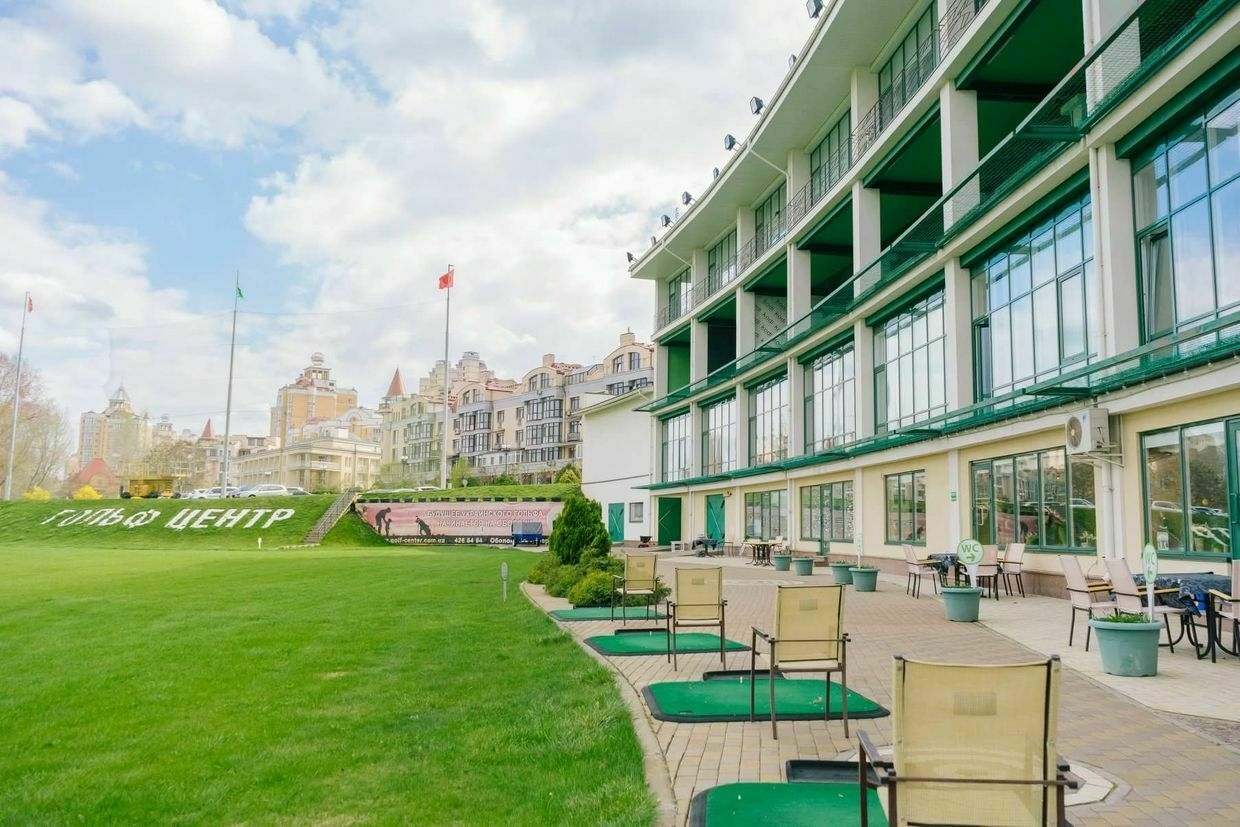
Once the playground of disgraced Ukrainian politicians, a golf club in Kyiv’s Soviet-era Obolon neighborhood is now set to become the new campus of the Kyiv School of Economics, which last month bought the site for $18 million as part of a $40 million investment — the largest private investment in education in Ukraine’s independent history.
At the opening picnic on the grounds last Sunday, over 2,000 students, alumni, and locals gathered on a territory once reserved for political elites, including scandal-ridden ex-President Viktor Yanukovych and other similarly shameless officials of his time.
After the 2014 revolution ousted those officials and Ukraine has seen a broader shift toward Europe, the early 2000s golf club — always more about status than love of sport — languished for years.
Starting next year, KSE, one of Ukraine’s top private universities, will reopen the site as a new campus focused on expanding its STEM programs to train engineers, mathematicians, and tech professionals needed for the country’s defense, recovery, and economy. KSE says it has already hired four mathematics professors from abroad to staff the math degree. The campus will also be open to the public.
“This was a closed elite community — we’re very capitalist, but we’re going to be socialists on this: Open it,” KSE director Tymofiy Mylovanov tells the Kyiv Independent at the picnic on June 1.
KSE began in the ‘90s with one executive business degree geared toward professionals who wanted to go abroad, and has since grown to 1,500 students across 17 programs — up from 177 students and six programs before the start of the full-scale invasion. The university has quickly outgrown its current building, which it bought in 2020 for $5 million.
KSE’s rector, Tymofii Brik, says the university, using a mix of “pragmatism and romanticism,” bet on Ukraine’s survival against Russia’s full-scale invasion — and its need for engineers to contribute to the war effort and rebuild — by launching new degrees in 2023, a year after the start of the invasion.
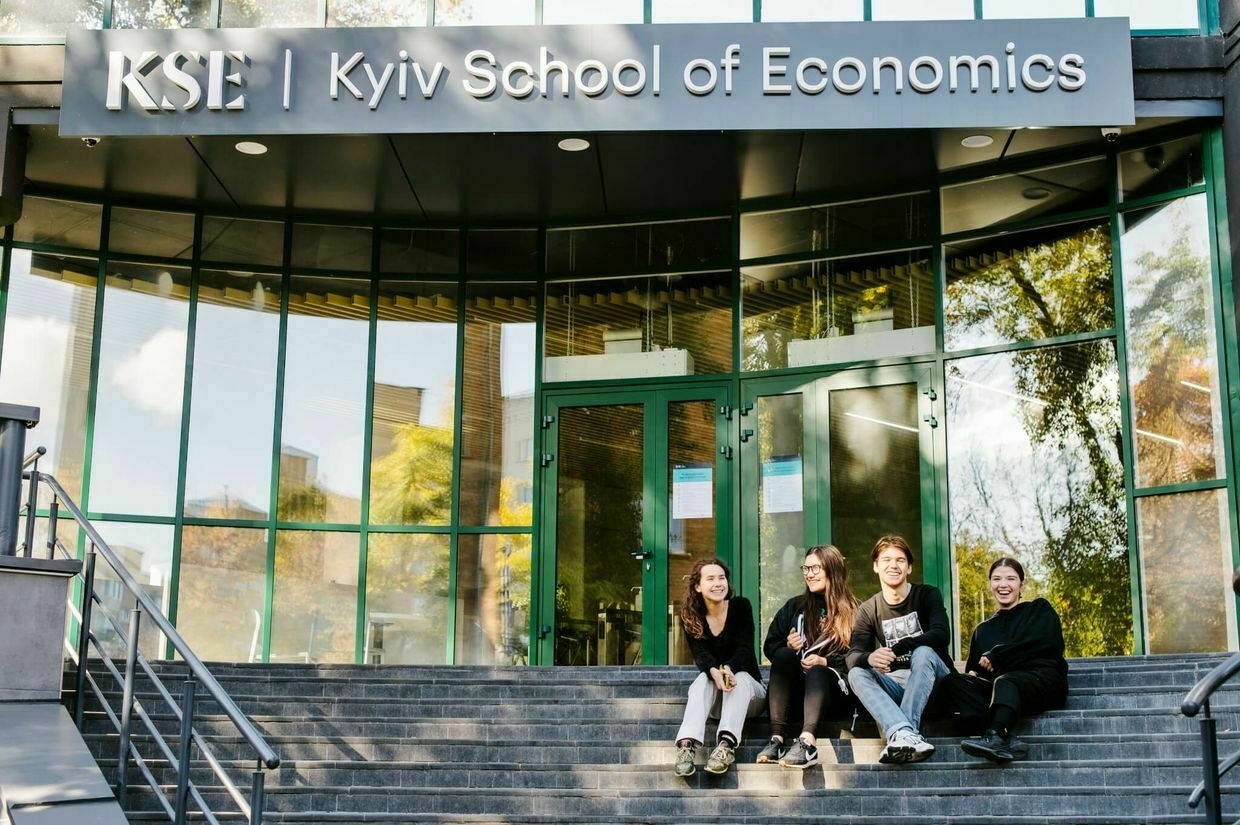
Despite the ongoing war, KSE has quickly rolled out new degree programs. (Golf Club Obolon / Facebook) That year, KSE added programs in psychology, memory studies, law, urban science, cybersecurity, and artificial intelligence. In 2024, the university launched programs in unmanned aerial vehicles (UAVs) and micro and nano-electronics.
The new programs resonated with students who stayed in Ukraine despite the war and wanted to help shape its future, Brik says.
“There’s this expression — ‘If you build a church, they will come.’”
KSE is planning to open the 15,000-square-meter (almost 4 acres, or the size of two soccer fields) grounds to the public and tear down the fences currently separating it from the riverwalk and adjoining public park, taking its inspiration largely from U.S. university campuses. While still small compared to most American universities, it will be the first of its kind in Kyiv. The Ukrainian Catholic University in Lviv has an expansive, open campus.
Early conversations with community members, which Brik, who grew up in the area, says the school is committed to engaging in, include an outdoor cinema in the summertime.
“People deserve to have access to this beautiful public space because it belongs to the public — we have no right to close it,” Brik says.
No large land deal in Ukraine is without scrutiny — the results of decades of corruption that have led to public mistrust. KSE’s announcement is no exception. Some critics have said the purchase price was inflated, while others have pointed out that zoning laws do not allow for a campus to be built on the golf course’s grounds, on the riverbank.
Mylovanov and Brik have quick answers to the accusations: On pricing, the buildings on the golf course have far more space than people realize; on zoning, they have no plans to build anything for now, and they will maintain some golf activity to comply with the current laws.
They also point out that, as a U.S.-registered company — it is not uncommon for Ukrainian organizations and companies to be registered abroad — KSE is subject to rigorous compliance checks on any deals they do.
Others have found the wartime investment, in Mylovanov’s words, “cringey.” But for that, too, Mylovanov has a response — first, the school’s donors, made up of confidential individuals and organizations from the U.S., U.K., and Europe, want to invest in education, not the military. And second, while defense is critical, education is also a crucial part of the country’s long-term security.

KSE purchased a former elite golf club in Kyiv for $18 million as part of a $40 million investment to create a new 15,000-square-meter campus, marking the largest private investment in education since Ukraine’s independence. (Kyiv School of Economics) Looking toward the long-term needs, KSE is partnering with Olin College in the U.S. to co-create a new, interdisciplinary engineering program, says Rebecca Brosseau, who is part of the team developing the new program.
Olin itself was founded 30 years ago on the very idea that traditional engineering curricula weren’t fostering the creative thinking future engineers needed.
Over the next year, Brosseau will recruit around 10 faculty and 10–15 students to launch a pilot program in late 2026, co-developing the curriculum together with the professors, students, and in partnership with Olin.
The goal, Brosseau says, is to build an interdisciplinary team that will design courses collaboratively and try “something completely revolutionary for engineering education and maybe even for higher education — anywhere.”
KSE’s approach is a far cry from Ukraine’s often inefficient, outdated, and even corrupt public education system — a problem of an ingrained culture, not people, says Brik. He believes that at the current moment in Ukraine, only private institutions have the flexibility to drive real reform.
“I would even put it in a very provocative way — if you gave $1 million to a public university right now, nothing would happen; but if you gave $1 million to us or the Ukrainian Catholic University, you would see something meaningful the same year,” Brik says.
When asked whether KSE wants to be a role model for Ukraine’s education system as a whole, Mylovanov says he’s done trying to prove anything to anyone.
“I just want more people in what I call the ‘anti-despair’ movement,” Mylovanov says, to counteract the defeatist narratives “by doing something small, but something real.”
With music festival honoring fallen combat medic, Ukrainians reinvent memorial cultureEditor’s Note: The following is the latest in a series of reports by the Kyiv Independent about the memorialization of Ukraine’s fallen soldiers. “We weren’t taught to live side-by-side with death in schools and universities, but it’s always near,” the speaker Anton Liahusha, the dean of theThe Kyiv IndependentNatalia Yermak
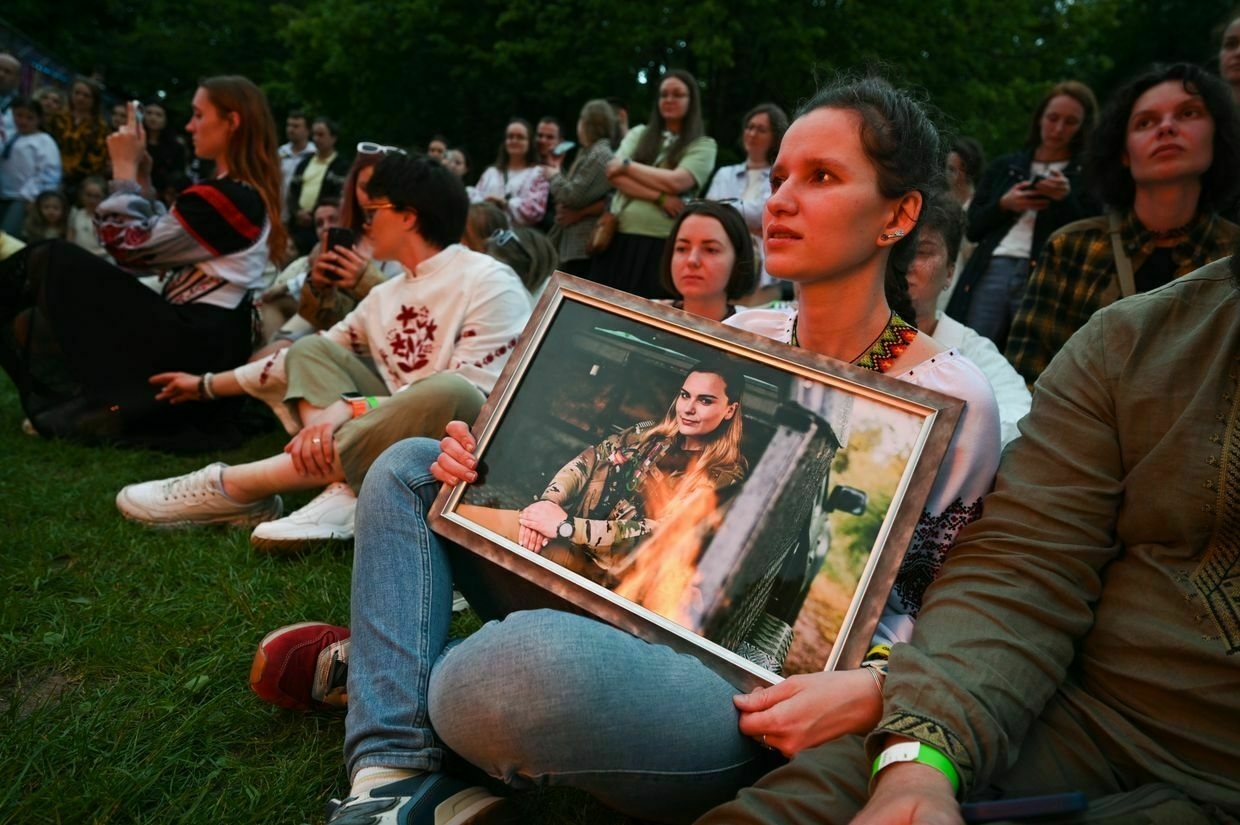
-
Controversial Russian literature prize sparks debate on separating culture from war crimes
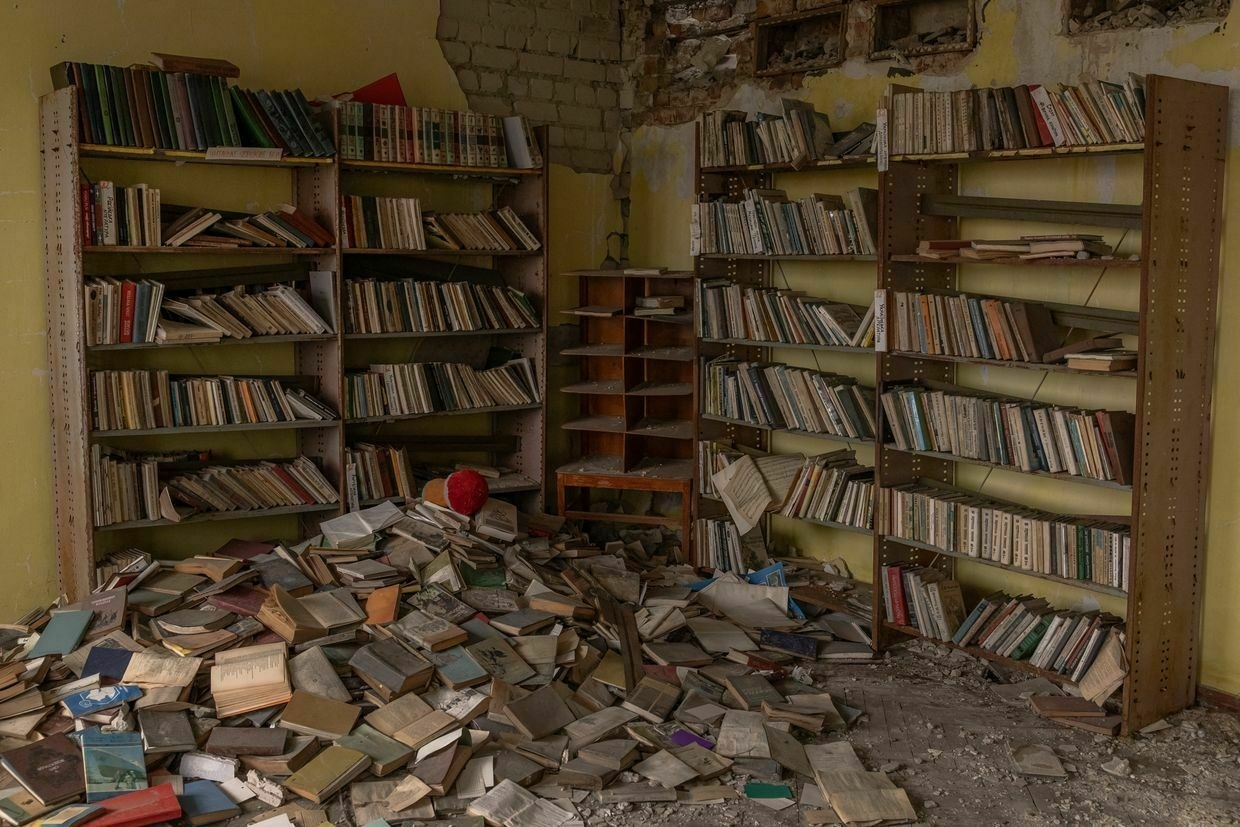
Launched to promote Russian literature on the global stage during Russia’s full-scale invasion of Ukraine, the new Dar (“Gift”) literary prize is already mired in controversy — and not just for its troubling timing.
After Ukrainian author Maria Galina declined the award for her wartime chronicle of Odesa, attention shifted to shortlisted Russian author Denis Beznosov over his past affiliation with the Russian State Children’s Library — an institution that hosted multiple “cultural” events for abducted Ukrainian children during his time there.
Since the full-scale war began, Ukrainian officials have documented the abduction of nearly 20,000 children by Russian forces. While in Russian territory, these Ukrainian children are subjected to systematic Russification, a deliberate effort to erase their heritage.
Beznosov has rejected the allegations that he was directly involved in any events with abducted Ukrainian children despite his senior role at the Russian State Children’s Library through the first year of the full-scale war, sparking a heated debate within Russia’s exiled cultural sphere over the broader issue of societal complicity during wartime.
Can Russian culture exist separate from the war?Founded in 2025 by exiled Russian author Mikhail Shishkin, the Dar literary prize aims to spotlight Russian-language writers and foster a space where “literature in Russian takes its rightful place in the world, being responsible to humanity, and not to dictatorships.”
Shishkin has lived in Switzerland since 1995 and has long been an outspoken critic of Russian President Vladimir Putin.
At the same time, he has repeatedly called for separating Russian culture from the Russian state. Writing in an op-ed titled “Don’t Blame Dostoevsky” for the Atlantic in 2022, Shishkin expressed the hope that a Ukrainian writer “will speak up for (19th century Russian poet Alexander) Pushkin” whose statues were being dismantled across Ukraine.
While the Dar literary prize was launched by its organizers with the intent to signal that the Russian government does not hold exclusive claim to Russian culture, the initiative has faced criticism for promoting Russian language and culture “regardless of their place of residence and citizenship,” as it states on its website.
“The prize is structured in such a way that, on behalf of dissenting voices, it continues to transmit the official Russian narrative about a borderless Russian culture.”
Critics argue that this approach overlooks the Kremlin’s long-standing use of the Russian language as a tool to suppress Ukrainian and other national identities throughout the region, especially during wartime.
“The prize is structured in such a way that, on behalf of dissenting voices, it continues to transmit the official Russian narrative about a borderless Russian culture,” Ukrainian cultural commentator Bohdana Neborak told the Kyiv Independent.
The one-line biographies omit the authors’ nationalities, making it difficult to differentiate them beyond their shared use of the Russian language — the implication, intentional or not, is that they all might as well be Russian.
“It seeks ways of reconciliation within a dialogue that takes place in a single language but across different countries — thus creating a unified space similar to what is promoted by Russian propaganda. Such a dialogue is impossible, regardless of the goals stated by the prize,” Neborak added.
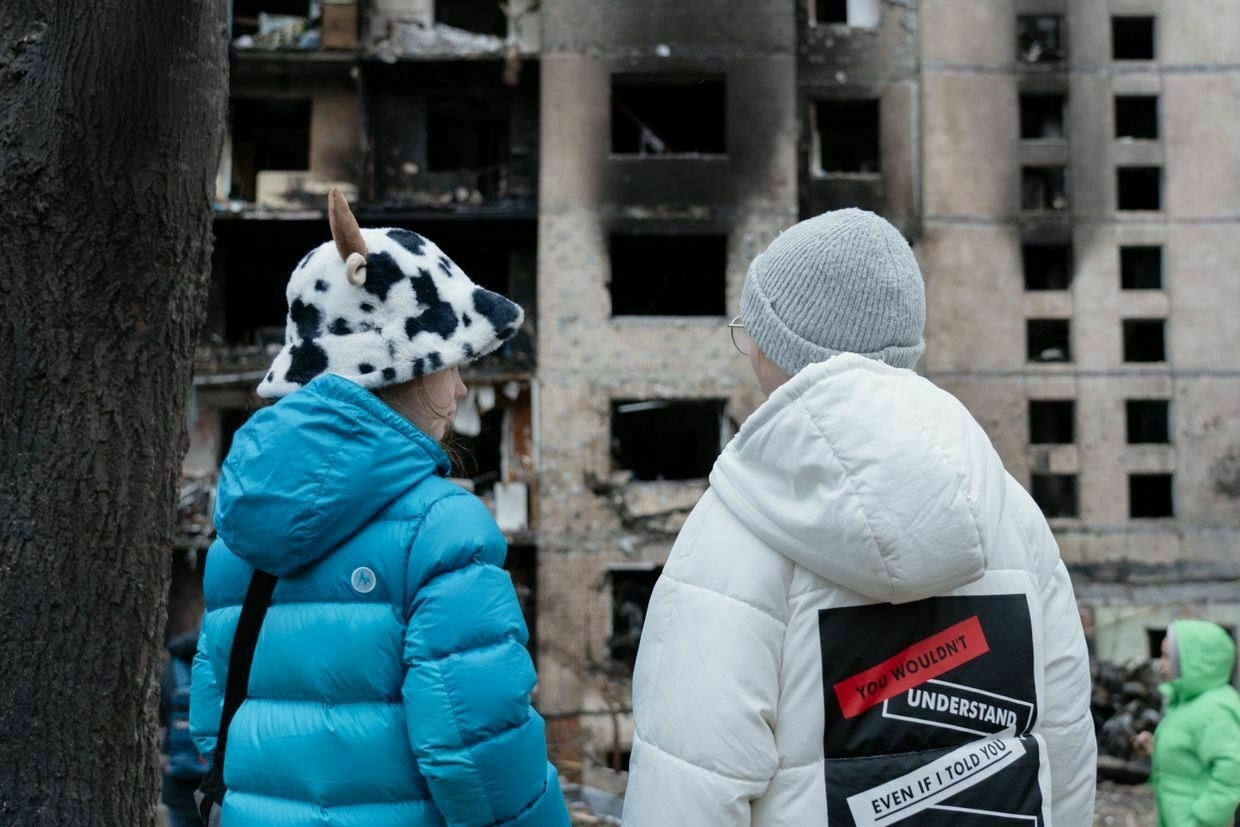
Children in front of apartments destroyed by a Russian missile attack on Jan. 2, 2024 in Kyiv. (Olena Zashko/The Kyiv Independent) Ukrainian author Galina, who is among those in the country’s cultural sphere to have distanced themselves from writing in Russian since the full-scale war, was initially named the winner of the Dar literary prize for her book on the war’s impact in Odesa, but declined it.
In an open letter published on the award’s website, she argued that Russian-language literature is not in need of such institutional backing abroad, citing its long-standing role as a successful tool of soft power abroad for Russia.
“Perhaps, when all the funding flows from Russia are finally cut off, Russian literature will eventually take its rightful place among other world literatures,” Galina said.
“And even that — only after it is cleansed of the crimes of the state.”
Speaking to the Kyiv Independent, Galina acknowledged Shishkin’s overall pro-Ukraine stance since Russia’s invasion of Donetsk and Luhansk oblasts and the annexation of Crimea in 2014.
While she mentioned the sincerity of his intentions in granting the award, Galina also cautioned that the realities of the ongoing full-scale war cast the award in a different light.
“Any attempts to sew the Russophone space are doomed now,” she said.
Shishkin did not reply to the Kyiv Independent’s request for comment.
Russifying abducted Ukrainian childrenAmid renewed debate over whether Russian culture can be meaningfully disentangled from the crimes of the Russian state, the Dar literary prize's greatest controversy stemmed from allegations that shortlisted author Beznosov may have been complicit in the state’s forcible deportation of Ukrainian children.
Beznosov served as the deputy director of the Russian State Children’s Library until November 2022, according to his LinkedIn account. However, he wrote in a post on his Facebook on May 29 that he left his position in September 2022 because “the events of 2022” made it impossible for him to continue his work.
During the first year of the full-scale war, the Russian State Children’s Library participated in a number of events involving Ukrainian children displaced by the Russian authorities from Ukraine’s occupied territories.
Photo albums uploaded to the organization’s Flickr page — including one from late March of 2022 titled “Meeting with children who were evacuated from Donbas” at a camp retreat — document the events, which were also covered by local media.
“People involved in crimes against humanity, in the deportation of Ukrainian children from occupied territories, or in the genocide of the Ukrainian people have no place near the Dar literary prize.”
Additional albums uploaded to the Russian State Children’s Library's Flickr account document the Kitovras Festival, which took place in August 2022 in Vladimir, a city located to the east of Moscow.
During the festival, there was an event for abducted Ukrainian children at a local library. Beznosov is photographed at the event, as is Russian children’s book author Andrei Usachev, who has been a vocal supporter of Putin and the war against Ukraine.
In his Facebook post, Beznosov claimed that he had curated the children’s program at the local park that year but denied any involvement in organizing the event for abducted Ukrainian children. He added that he was present at the event because he was “asked to announce the participating writers” in the capacity of his role at the Russian State Children’s Library.
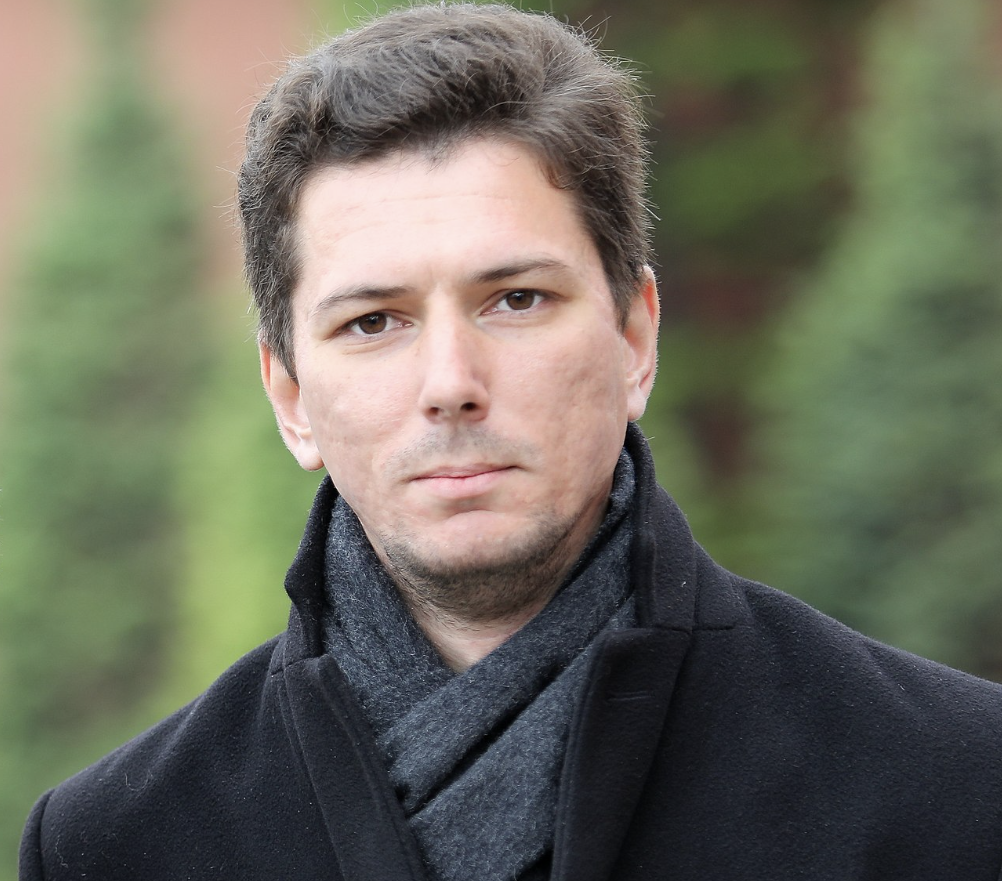
Denis Beznosov at the Red Square Book Festival in Moscow, Russia in 2017. (Wikimedia) “I had no involvement with the (event with abducted Ukrainian children in Vladimir), have never been to Donbas, and did not compile any guidelines for promoting the Russian language or other similar recommendations. I never received or saw any such materials,” he wrote.
Beznosov did not respond to the Kyiv Independent’s request for comment.
Given the controversy surrounding Beznosov was sparked by his nomination for the Dar literary prize, Shishkin wrote on Facebook that “to what extent Denis Beznosov participated in these crimes — and whether he participated at all — must be determined by (the Ukrainian authorities), not a literary prize.”
“People involved in crimes against humanity, in the deportation of Ukrainian children from occupied territories, or in the genocide of the Ukrainian people have no place near the Dar literary prize.”Because of Russia, my child understood fear earlyMy daughter is just over a year old. She’s learning to walk, says a few words in both Ukrainian and English, and because of Russia’s war, she already has an acute understanding of what it means to be afraid. The first time she reacted to the air raidThe Kyiv IndependentKate Tsurkan
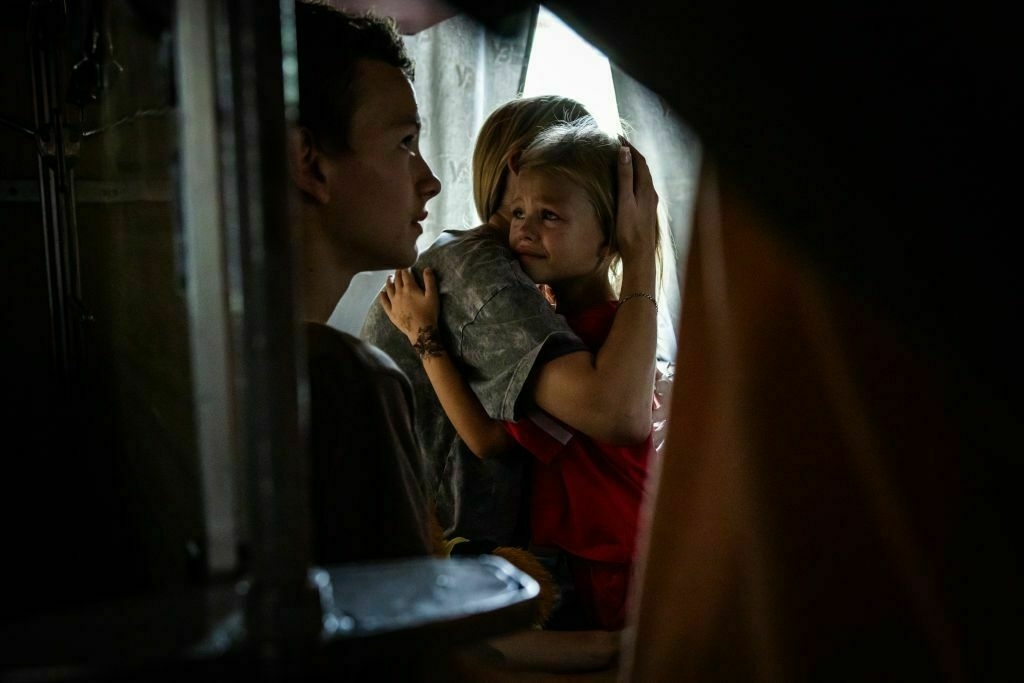
Questions of accountabilityBeznosov’s professional background came under renewed scrutiny after Galina Rymbu, a Russian writer based in Ukraine, publicly alleged his complicity in the genocide of Ukrainians during his tenure at the Russian State Children’s Library.
In her posts, Rymbu highlighted that a closer examination of the events held by the library revealed that they were part of a larger, deliberate campaign to Russify abducted Ukrainian children.
“These camps (where children are brought) impose propaganda, cultural, educational, literary, and military-patriotic programming designed to erase Ukrainian identity and instill ‘great Russian culture and language,’ with the aim of convincing children they are now ‘Russian,’” Rymbu explained in her initial post.
“Not just the deportation itself, but also these ‘re-education’ camps and the propaganda and ‘cultural’ activities conducted in them are classified as acts of genocide by the Parliamentary Assembly of the Council of Europe resolution.”
Given the context of the full-scale war, the organization of events with abducted Ukrainian children would have been impossible without direct communication between the Russian State Children’s Library and the Russian security services, Rymbu wrote.
Photographs from the retreat with Ukrainian children posted in March 2022 on the Russian State Children’s Library’s Flickr page show a vehicle belonging to the Russian Ministry of Civil Defense, Emergencies, and Disaster Relief on the grounds.
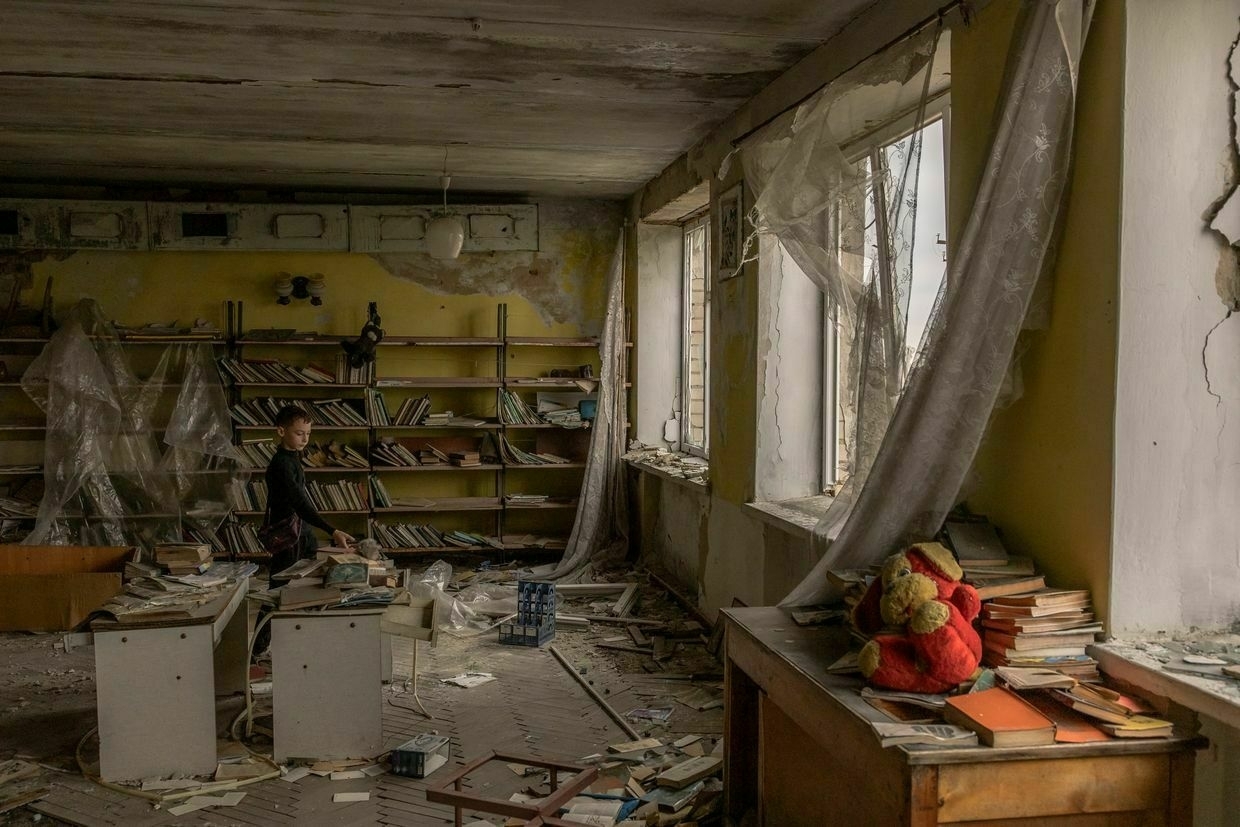
A child walks inside the damaged House of Culture in Posad-Pokrovske, Kherson region, on Nov. 4, 2023, amid the Russian invasion of Ukraine. (Roman Pilipey / AFP via Getty Images) Rymbu also shared in her post a link to the grant application for “The First Book Goes to the Children,” the Russian State Children’s Library’s program associated with “cultural” events involving abducted Ukrainian children.
The application is publicly available on the Russian Presidential Fund for Cultural Initiatives’ website. It is presented as a project dedicated to preserving the “all-Russian cultural identity” and “counteracting the phenomenon of cancel culture.”
The Russian State Children’s Library proposes in the grant application that the "great Russian culture" can be a form of "psychological support" for Ukrainian children who “relocated” to Russian territory.
"The involvement of highly qualified specialists in children’s reading engagement and child psychologists will help children and teenagers not only connect with great Russian culture through books but also comprehend the foundations of Russia's spiritual and moral code," the proposal reads.
“Anyone even remotely connected to Russia’s occupation practices should be considered persona non grata.”
Following Rymbu’s investigative posts, several Russian artists in exile have rallied behind Beznosov, with Russian poet Dmitry Kuzmin even hinting at “provocations orchestrated by Russian security services” behind the issue rather than engaging with the gravity of the allegations levied against Beznosov.
Mikhail Edelstein, a Russian literary scholar who is listed on the expert council of Dar’s website, even went as far to call Rymbu’s posts “disgusting manipulation and clout-chasing.”
According to Russian author Sergei Lebedev, the absence of a clear anti-war, pro-Ukraine position among some members of the Russian literature community in exile reflects a deeper unwillingness to fully confront the scale of Russia’s aggression against Ukraine.
“The key problem is that for many Russian cultural figures, Russia’s war of aggression against Ukraine started in 2022, not in 2014,” Lebedev told the Kyiv Independent.
“And between 2014 and 2022 lies a gray zone of silence and moral compromises that most participants obviously don't want to look into.
However, Lebedev argues that it’s important to confront those in Russian society who were complicit with Russia’s war against Ukraine, regardless of the scale.
“Anyone even remotely connected to Russia’s occupation practices should be considered persona non grata,” Lebedev wrote on social media.
Note from the author:
Hi, this is Kate Tsurkan, thank you for reading this article. The Kyiv Independent doesn’t have a wealthy owner or a paywall. Instead, we rely on readers like you to keep our journalism funded. We’re now aiming to grow our community to 20,000 members — if you liked this article, consider joining our community today.
-
Without justice, war will come back, veteran reporter says
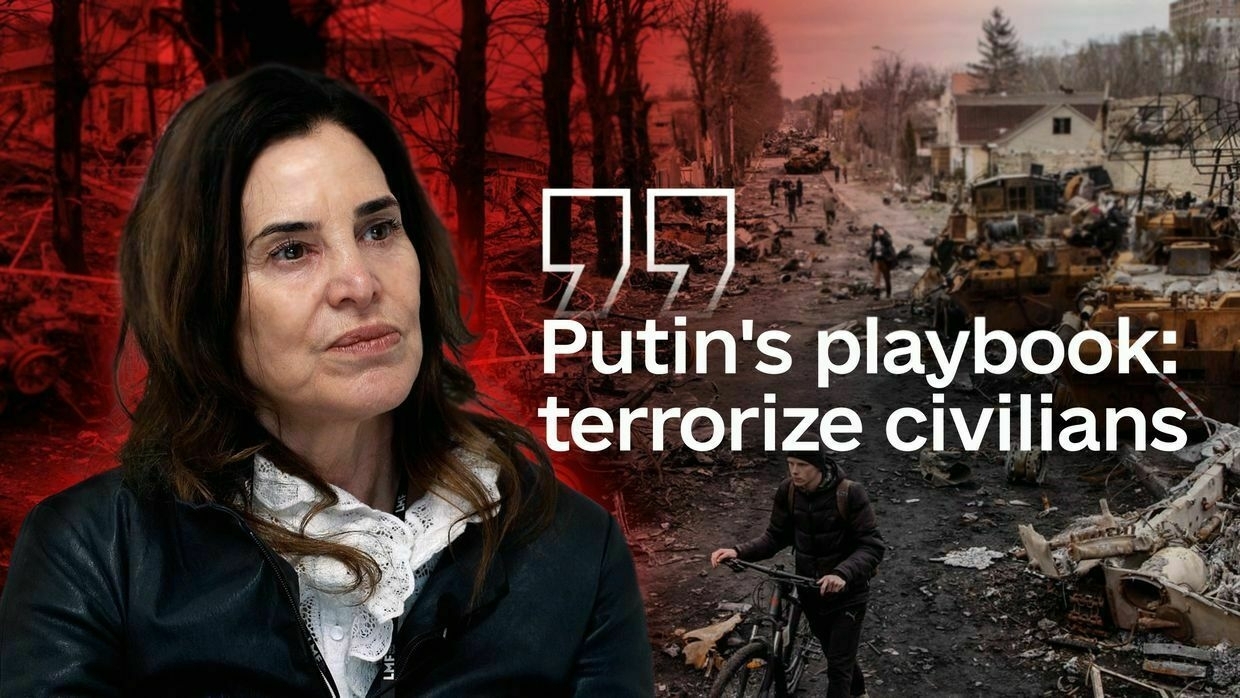
Janine di Giovanni, a veteran war reporter and author who has covered decades of conflicts in Rwanda, Syria, Iraq, and Bosnia, reflects on her work in Ukraine and other conflicts.
-
Damage, disruptions reported following explosion on train tracks in Russia's Voronezh Oblast, official claims
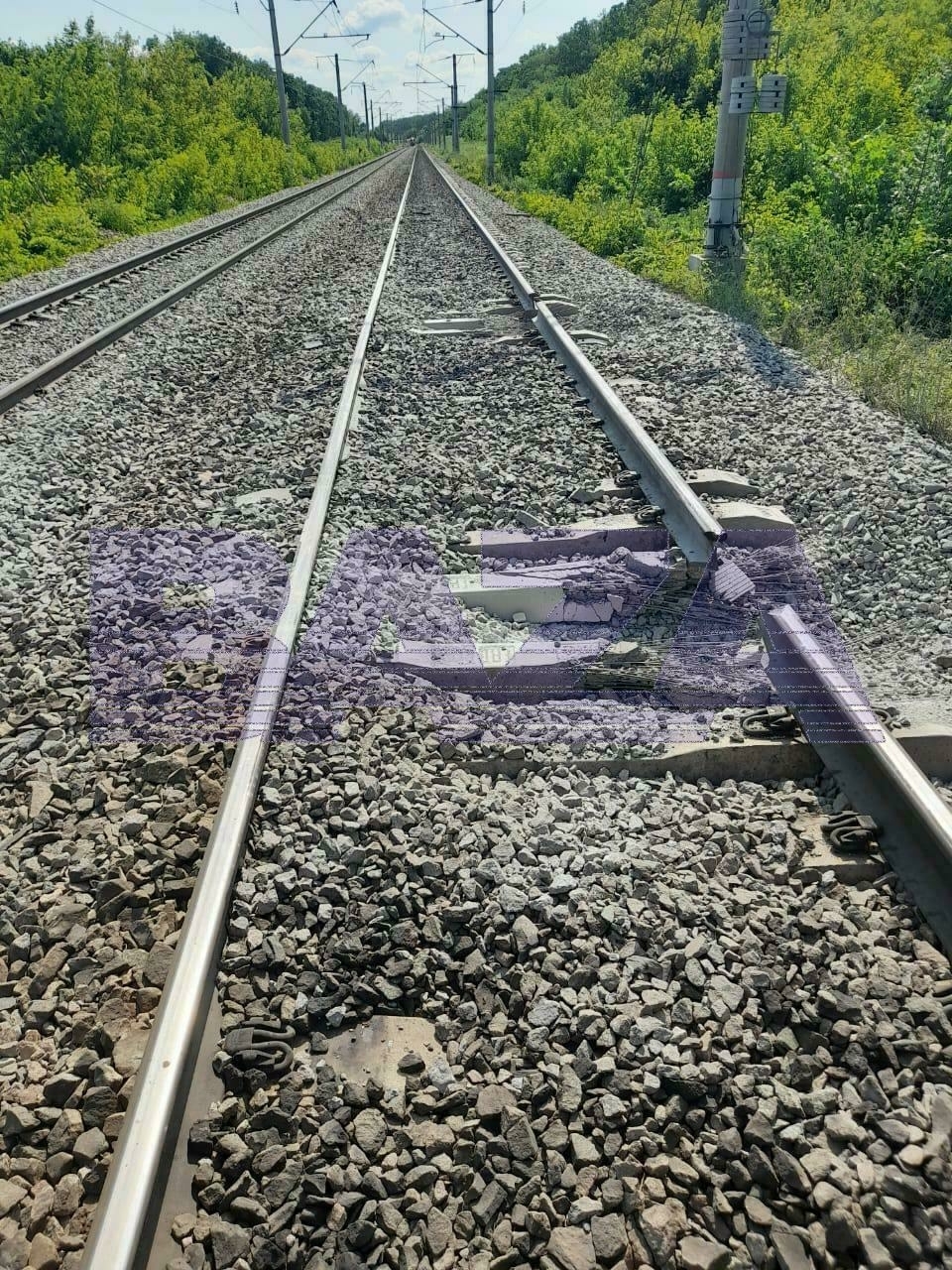
An explosion on a rail line in Russia’s Voronezh Oblast on June 5 caused damage to the track and disrupted train travel along the line, regional Governor Alexander Gusev claimed.
The explosion occurred in a remote area between the communities of Yevdakovo and Saguny in Voronezh Oblast.
Gusev claimed that no one was injured in the explosion that immediately disrupted the travel of at least 19 passenger and commercial trains. The explosions was allegedly caused by an improvised explosive device.
The Kyiv Independent cannot verify claims made by Russian officials. The full extent of the damage was not immediately clear.
Russian officials have not yet laid blame publicly as to the cause of the explosion.
Ukraine’s intelligence agencies as well as Ukrainian partisan movements have previously been involved in sabotage attacks on Russian railways, disrupting the transport of military cargo toward the front line.
Neither the Ukrainian military nor the partisan movement Atesh commented on the alleged attack.
Ukraine’s Military Intelligence Agency (HUR) said Ukrainian drone operators destroyed three Russian fuel tanks during a strike on a train moving through occupied areas of Zaporizhzhia Oblast on May 24.
Overnight on May 31, following the collapse of an overhead road bridge, a train derailed in Russia’s Bryansk Oblast killing seven people and injuring 69.
Voronezh Oblast neighbors Ukraine’s Kharkiv Oblast and is often used as a launch point for Russia’s attack on the front line as well as the city of Kharkiv.
Russia plans to produce 2 million FPV drones in 2025, Ukrainian intelligence saysThe ramp-up marks a critical expansion of Moscow’s drone warfare program, as both Ukraine and Russia increasingly rely on unmanned systems for reconnaissance and front-line attacks.The Kyiv IndependentTim Zadorozhnyy
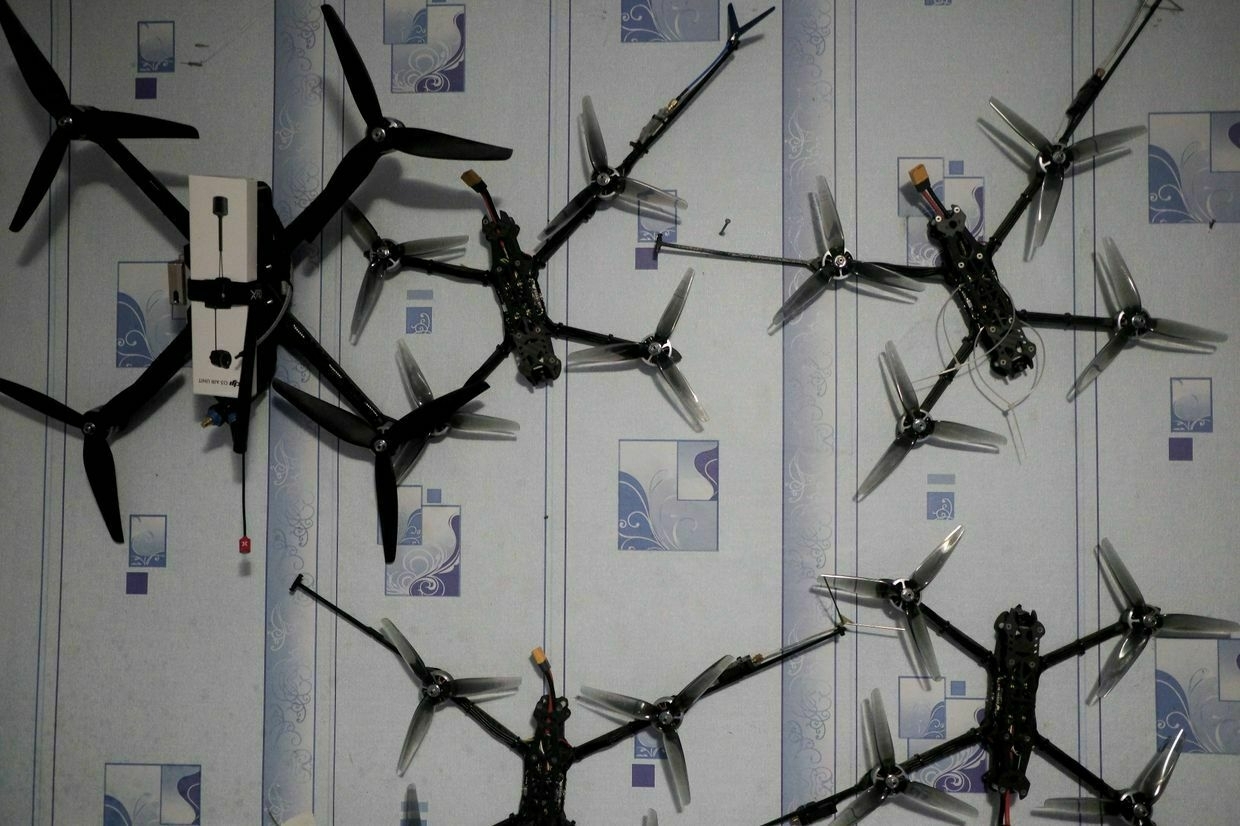
-
Art through the eyes of wartime children
Editor’s Note:
Unicef reports that as of Feb. 2025, more than 2,500 children have been killed or injured by the war. Millions more have experienced violence, displacement, or the loss of family members.We write stories which you find on no other news publications.
Please support us as we continue to do this work. May and June are our toughest months.Yaroslava’s tiny cat could have been drawn by any little girl around the world.
But looming over the cat, a tank with a familiar blue and yellow flag shows that the young artist is from Ukraine.
As the war progressed, Yaroslava sketched what words couldn’t express. As the years have passed, her drawings are still a silent conversation about her fears and dreams.
It's an outlet for Yaroslava, a way to find peace at a time when everything around her is unstable, her mother says.
The drawings children create during the war are more than just art. They express emotions that cannot always be put into words: fear, anxiety, homesickness, hope, dreams of peace, and the warmth of family.
As someone who will soon become a mother, these drawings resonate deeply with me — they serve as a poignant reminder of how even the youngest try to make sense of war, and how much they need safety, love, and hope. Behind every crayon line is a child longing not just for peace, but for a world where their fears no longer need to be drawn.
"I always wanted to keep a diary, but I hate writing, [it] is my least favorite thing. I showed my emotions in drawings – it made me feel happy, or just like I was ready to dance off the floor," Yaroslava told The Counteroffensive.
She was only seven when the full-scale invasion began. Just before that, her mother, Anna Gorozhenko, had bought a large classical piano for her to start lessons, recognizing her artistic talent and hoping she would pursue music.
After temporarily settling in the UK, a host family sought to support her by paying for musical lessons.
But Yaroslava suddenly refused to continue.
“She said to me that she doesn’t want to play music… She told me she wants to be an artist. After the invasion, she recognized herself in art, not music. She needed to put this situation on paper,” Anna told The Counteroffensive.
For Yaroslava, painting is more than a hobby; it's a way to regain a sense of security. Unlike music, which requires concentration and tension, drawing is a form of relaxation for Yaroslava, a way to express her emotions.
"Children cannot express their feelings. It's much harder to say what they are going through. So, they put it all together in an image and put it on paper," psychologist Yana Hryvchuk told The Counteroffensive.
One of Yaroslava’s favorite artwork tells the fictional story of a woman enslaved in Russia. She lived in conditions resembling hell, which is depicted in the drawing by burning buildings and fire.
Later, after many years, the heroine returns home to a field surrounded by trees under a peaceful sky. She is happy and free, and wings grow on her back to symbolize liberation.
“Several of my friends were held captive: her grandmother in Hostomel under occupation, her other grandmother in besieged Chernihiv, and her grandfather in Kherson under occupation. We were all very worried about them, as we knew what occupation was like,” Yaroslava’s mother, Anna, said.
This drawing is vital to Yaroslava because it shows everyone will eventually find freedom.
Experts believe that drawing helps children deal with the hardships of conflict. In one exhibition, ‘Mom, I See War,’ over 15,000 drawings were collected, demonstrating that drawing is a common way for children to cope with their emotions.
Children often turn everything around them into drawings — for example, their dreams, stories from books or cartoons, what they see in the news on TV, and so on.
"A child may feel powerless because he or she cannot influence or stop the war. However, they can imagine changing something. This isn't about escaping reality; it's about restoring [mental balance]," psychologist Hryvchuk said.
In addition, such drawings clearly indicate that the child's psyche is actively processing the experience; it is not frozen, Hryvchuk believes. This is a positive sign, as it suggests the child is gradually working through their emotions, and that gives hope for a healthier psychological state in the future.
According to research by the analytical company Gradus Research, Russian war has traumatized 75 percent of Ukrainian children.
However, studies show that drawing can be a tool of coping with trauma. Art therapy is often used for people who struggle to recognize and express their true emotions. This is especially relevant for children.
Adults express their trauma directly through words and conversations, while children do so through symbols.
"A drawing is perhaps the simplest form of art for a child to express a feeling. Anyone can draw something; it doesn't necessarily have to hold any classical artistic value," Svitlana Osipchuk, Program Director of the War Childhood Museum.
Moreover, the psyche tends to suppress traumatic experiences — a phenomenon known as traumatic amnesia. The associated emotions and repressed feelings can accumulate over time and eventually erupt like an emotional ‘explosion.’ Through art, children can bypass these defense mechanisms.
The youngest author of the documented drawing by the War Childhood Museum Ukraine reflecting his wartime experience is five years old, Osipchuk said. His drawing depicted an imaginary base of soldiers and was titled ‘Base of a Good Soldier’.
“We [adults] know that there is the Armed Forces… For them, at the age of five, they are still too young to understand [it]. They somehow imagine it more in a mythological, fairy-tale way, that there are good heroes and bad heroes. And he [the boy] said that the good soldiers shoot back [at] the zombies,” she explained.
Usually, children stop drawing at the age of 16-17, if they decide not to take it up professionally, according to Osipchuk. They just overgrow it.
Last year, Yaroslava and her mother returned to Kyiv after years abroad. During that time, constant danger had become normal: explosions outside the window, waking to shelling, and quickly taking cover under stairs.
"I was really annoyed because I couldn't fall asleep. I was like, 'Oh, I'm so angry,'" Yaroslava said.
Yaroslava especially loves drawing winged and tailed creatures – fantastical beings, her mother says, who can fly away to other worlds. Her art is both an escape and a way to process her experiences.
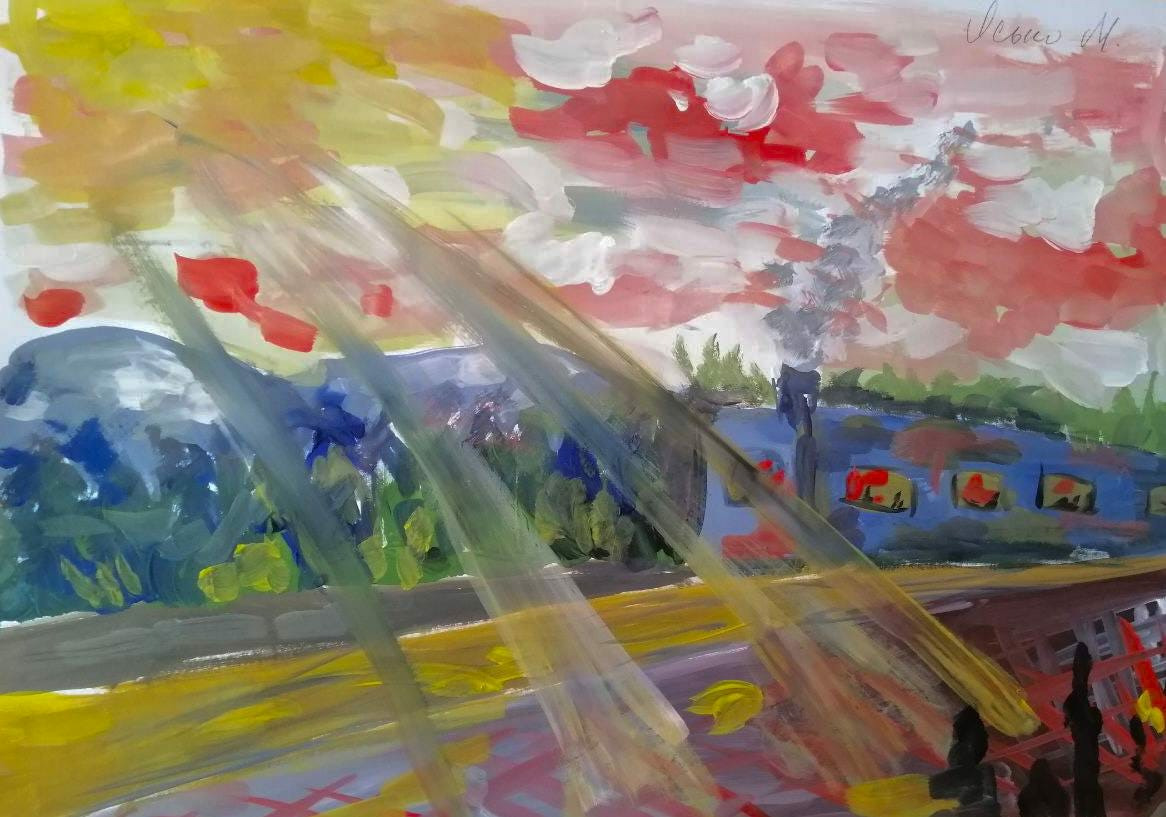
A drawing by a 14-year-old girl who was leaving Kyiv, where she spent some time under fire. She drew a train and sun rays. But they resemble Grad attacks. In the lower corner are people in a bomb shelter. Source: Zn.ua This emotional logic of children’s drawings – blending danger with rescue, fear with hope – is not unique to today’s war.
For children during the Second World War there was a similar resonance.
The street exhibition ‘Mom, I Don’t Want War’ in Kyiv highlights this connection, displaying Polish children’s drawings from 1946 and contemporary works by Ukrainian kids side by side. Though the stories differ, their experiences of war feel remarkably alike.
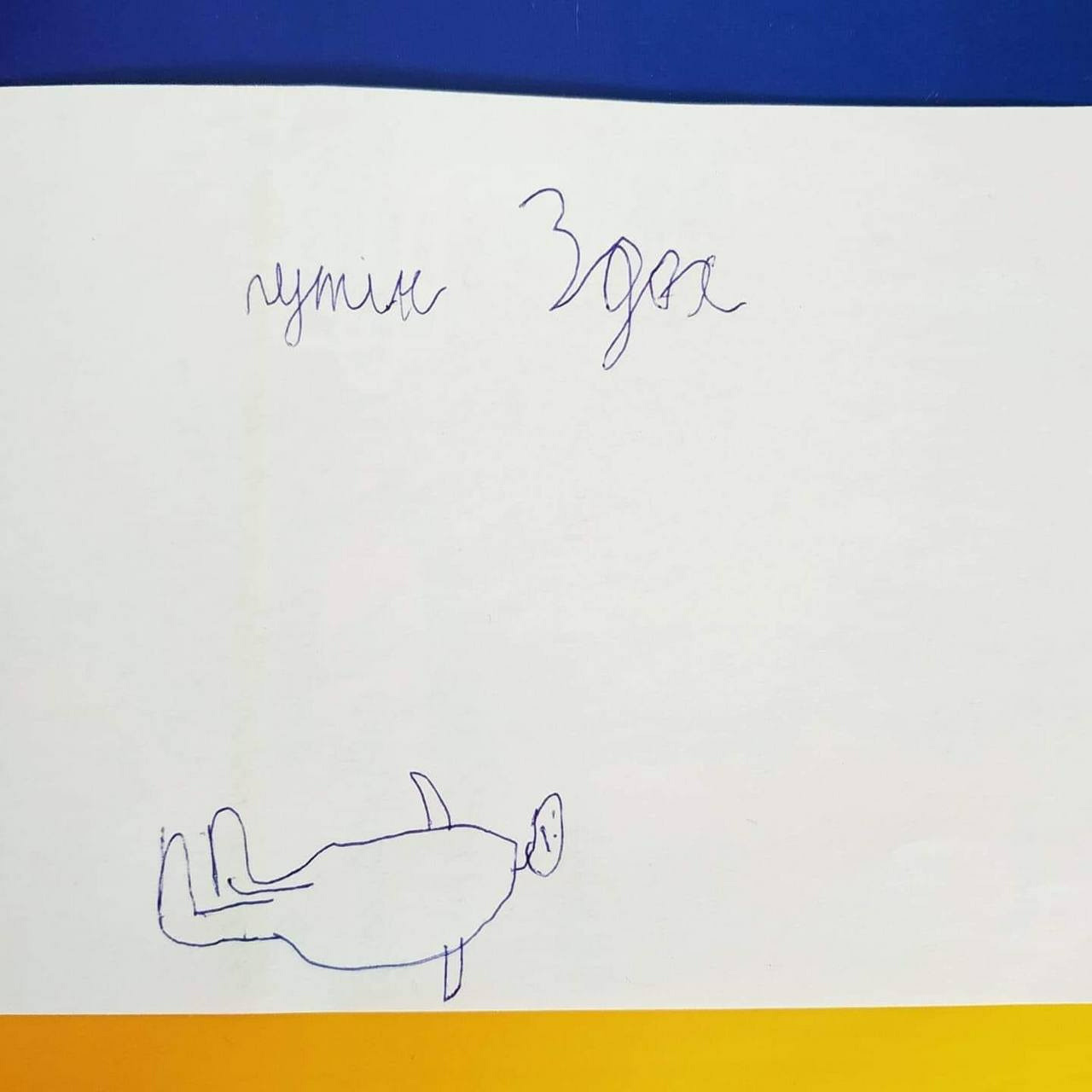
A child's drawing that says: “Putin is dead”, 2024. Source: Facebook/Освіторія. 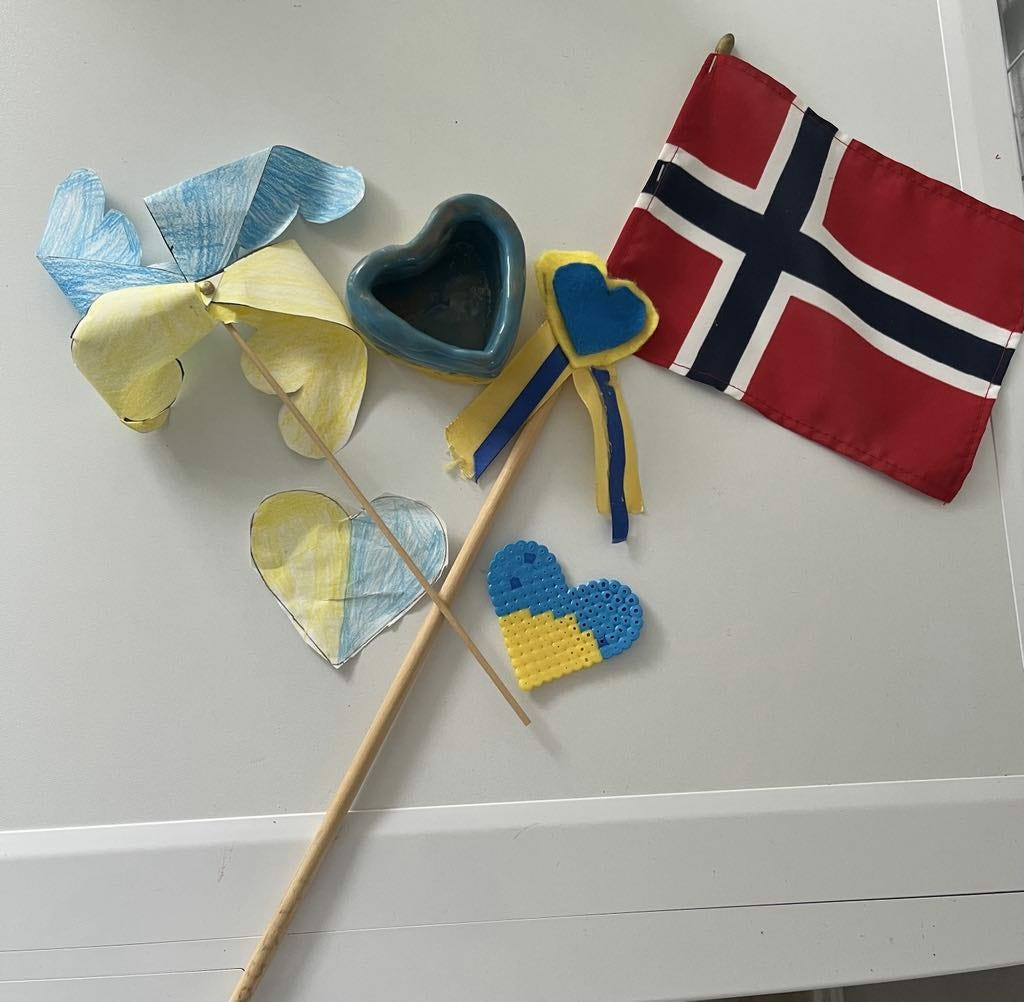
Items made by Ukrainian girls who fled to Norway during the war, including Uliana's blue and yellow pot and a Norwegian flag with a heart in the colors of the Ukrainian flag, Norway, 2025. For a child, art is not just a creative outlet; it's also a way to organize their inner world. In moments of anxiety when one doesn't understand what is happening, drawing adds structure, said the psychologist Hryvchuk.
A drawing turns scattered feelings into a story – something a child can see, touch, and explain. This helps ease anxiety by giving shape to what’s inside.
Just as important is an attentive adult. By noticing and asking about a child’s drawings, parents can better understand their emotions and open space for conversation.
They feel that the most important thing is to make a child feel that the world still has colors and is not destroyed.
NEWS OF THE DAY:
RUSSIAN TROOPS TO TRANSNISTRIA TO SPOIL MOLDOVA ELECTIONS: Russia plans to send an additional 10,000 troops to pro-Kremlin Transnistria to sabotage Moldova’s parliamentary election, the Financial Times reported.
“They want to consolidate their military presence in the Transnistrian region,” said Dorin Recean, Moldova’s PM. Such efforts to establish a military presence on the other side of Ukraine’s borders include online propaganda and illegal payments to voters.
Moscow has already tried to put a pro-Russian government during elections in Romania – a NATO member – to interfere in the EU’s support for Ukraine. As Ukraine refuses Russian demands for non-alignment, the Kremlin is trying to stand between Ukraine and NATO.
TRUMP DELAYS RUSSIA SANCTION BILL AFTER PUTIN CALL: Trump urged the Senate to delay voting on a bill proposing 500 percent tariffs on imports from countries that continue to purchase Russian oil, said GOP Sen. Roger Wicker.
That happened following a phone call between Trump and Putin, in which the Russian dictator warned he would seek retribution after Kyiv’s massive ‘Spiderweb’ operation.
The bill is currently backed by 82 out of 100 senators and has been seen as a major escalation in economic pressure on Russia, signaling U.S. resolve.
SHADOW FLEET FAILS TO BOOST RUSSIA’S DECLINING ECONOMY: More and more industries in Russia are slowing, causing concern among authorities that ‘controlled cooling’ may spiral into deeper stagnation, the Moscow Times reported.
Maxim Reshetnikov, Economic Development Minister, warned that the trend is no longer isolated, with heavy vehicles sales halved and domestic machinery output down 14% in early 2025.
This comes despite the Kremlin’s continued use of its so-called ‘shadow fleet’ to circumvent Western oil sanctions and keep revenues flowing.
But the effort is failing to stabilize the broader economy. With high interest rates curbing lending, ministers are pressing the Central Bank to cut rates and expand stimulus.
CAT OF CONFLICT:
Today’s cat of conflict is a cat Veronika saw next to her dorm. He was very glad to be petted.
Stay safe out there.
Best,
Veronika -
Slovak parliament urges government to oppose new Russia sanctions
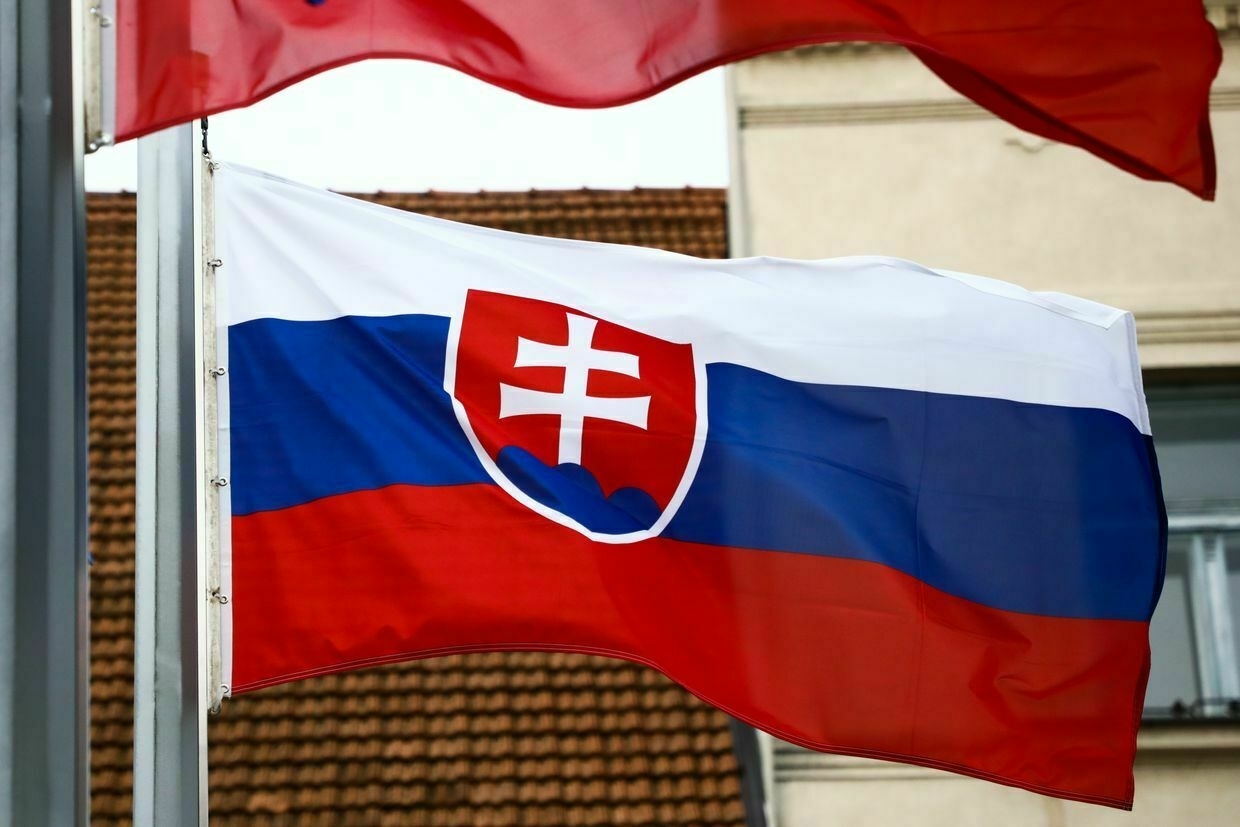
Slovakia’s parliament passed a resolution on June 5 urging the government to oppose any new international sanctions or trade restrictions against Russia, citing alleged negative economic impacts, Slovak news outlet Noviny reported.
The non-binding resolution argues that the sanctions imposed in response to Russia’s full-scale invasion of Ukraine have driven up energy prices, disrupted supply chains, and harmed Slovak industry.
The resolution calls on government ministers to “defend national economic interests” in international forums and resist further punitive measures targeting Moscow.
The motion was introduced by the far-right Slovak National Party (SNS) and passed with the support of 51 of the 76 lawmakers present.
All SNS deputies backed the measure, along with most members of Prime Minister Robert Fico’s left-wing Smer-SD party, several from the coalition partner Hlas-SD, and some independents.
Only one Hlas-SD lawmaker, Jan Ferencak, voted against the resolution; 23 others from the same party abstained. Opposition lawmakers boycotted the vote entirely.
While Fico’s Smer party has drawn criticism for its increasingly pro-Russian rhetoric, the SNS promotes a “pan-Slavic brotherhood” narrative that aligns closely with Kremlin talking points.
The resolution does not carry legal force but sends a political signal that could complicate Brussels' efforts to maintain consensus on sanctions.
EU foreign policy decisions, including sanctions, require unanimous approval by all member states. A Slovak veto could force concessions or delay enforcement in future rounds.
Since taking office in 2023, Fico has reversed Slovakia’s previous pro-Ukraine policy, ending military aid to Kyiv and questioning the value of EU sanctions on Russia.
The EU’s sanctions regime currently targets over 2,400 Russian individuals and entities involved in the war, as well as key sectors of the Russian economy, including energy, finance, defense, and technology.
Hiding in plain sight — how Russia’s cultural centers continue to operate in US, Europe despite espionage claimsIn the video, Russian activist Anna Kiryakova reads from a book of poetry that glorifies her country’s war against Ukraine. The anthology’s title — “Poetry of the Russian Winter” — is written with the Latin Z in place of its Russian analog. The inclusion of that one letter aligns theThe Kyiv IndependentLinda Hourani
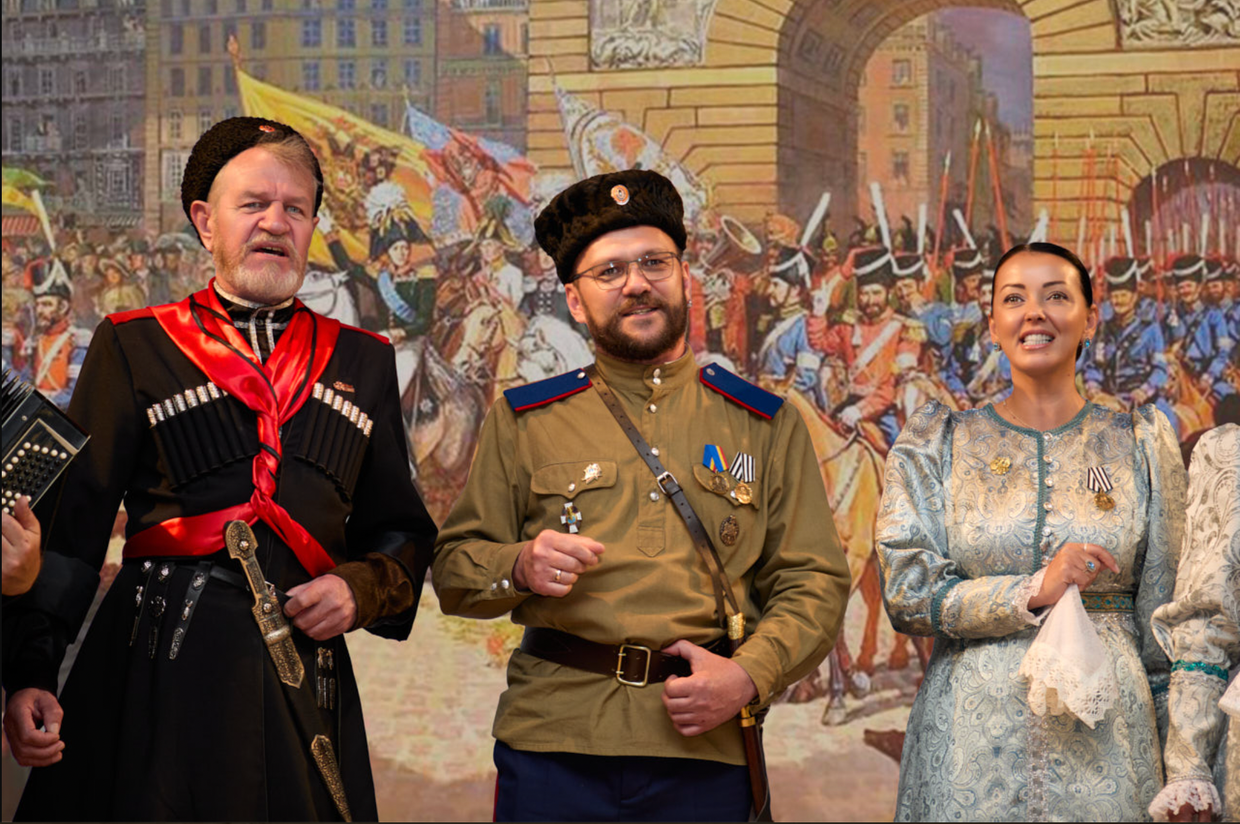
-
Russia plans to produce 2 million FPV drones in 2025, Ukrainian intelligence says
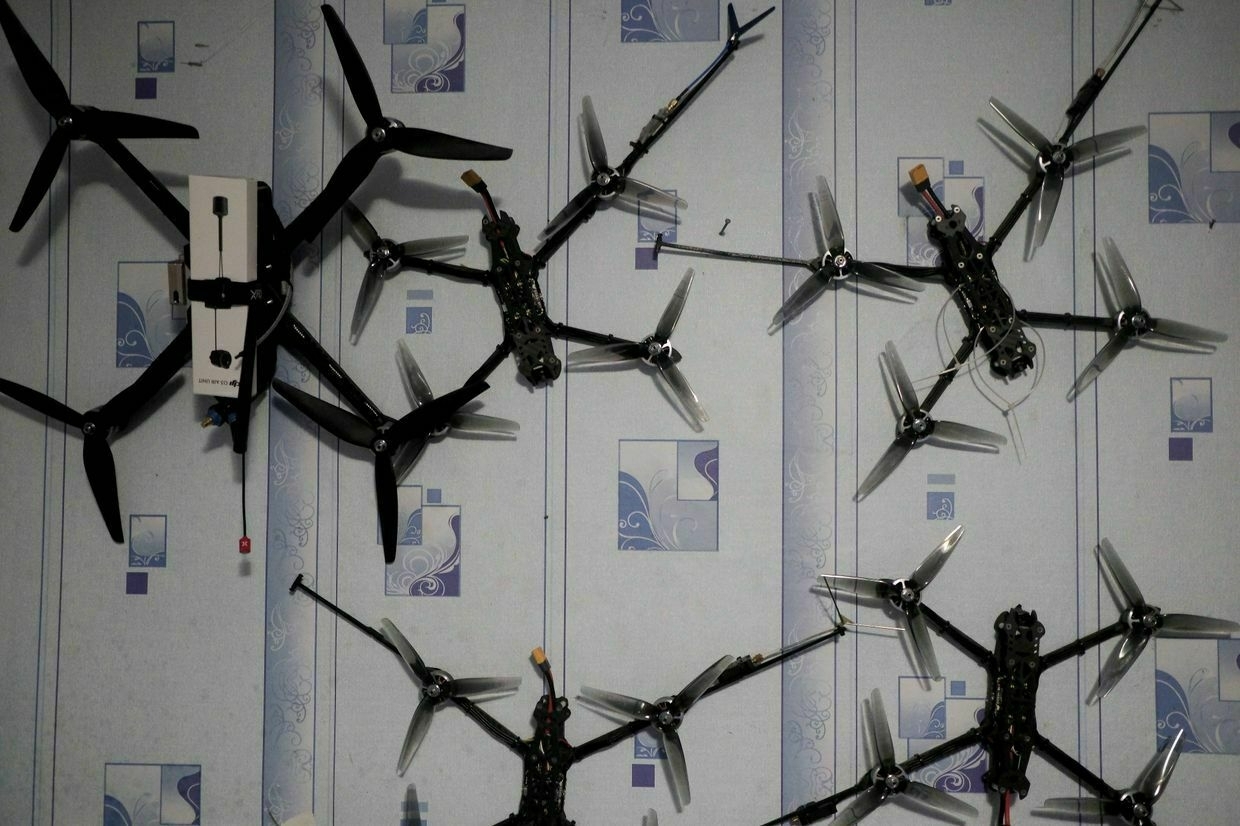
Russia plans to produce 2 million first-person-view (FPV) drones and 30,000 long-range and decoy drones in 2025 for its war against Ukraine, Ukrainian Foreign Intelligence Service (SZRU) spokesperson Oleh Aleksandrov told Politico on June 5.
The ramp-up marks a critical expansion of Moscow’s drone warfare program, as both Ukraine and Russia increasingly rely on unmanned systems for reconnaissance and front-line attacks.
According to Aleksandrov, Russia’s drone production is heavily dependent on Chinese components. Despite Beijing’s public denials, Chinese manufacturers continue to supply Russia with key electronics and technologies.
“They use so-called shell companies, change names, do everything to avoid being subject to export control and avoid sanctions for their activities,” Aleksandrov said.
The intelligence official warned that this industrial support allows Moscow to narrow Ukraine’s early advantage in drone innovation.
“They aim to produce about 30,000 long-range drones of those types plus 30,000 false target drones they use to exhaust Ukrainian air defenses in 2025,” he added. “As for the FPV drones, Russians are aiming to produce a whopping 2 million of them in 2025."
FPV drones, small and agile devices often equipped with explosive payloads, have proven highly effective in damaging tanks, artillery, and other high-value targets at low cost.
President Volodymyr Zelensky said earlier this year that Moscow is working to manufacture up to 500 long-range drones per day, Suspilne reported.
The Kremlin’s nightly drone attacks — frequently involving Iranian-designed Shahed-type drones — have strained Ukraine’s air defenses and inflicted heavy damage on cities and infrastructure.
Ukraine, for its part, has dramatically scaled up domestic drone production in response.
The Strategic Industries Ministry reported that Ukraine more than doubled its long-range drone output in 2024 compared to 2023 — a 22-fold increase over 2022.
Putin rejects Zelensky’s call for peace talks, accuses Ukraine of deadly bridge attack in RussiaRussian President Vladimir Putin on June 4 accused Ukraine of being governed by a terrorist regime that deliberately targets civilians and claimed it is continuing to lose the war. He rejected the possibility of holding talks.The Kyiv IndependentOlena Goncharova
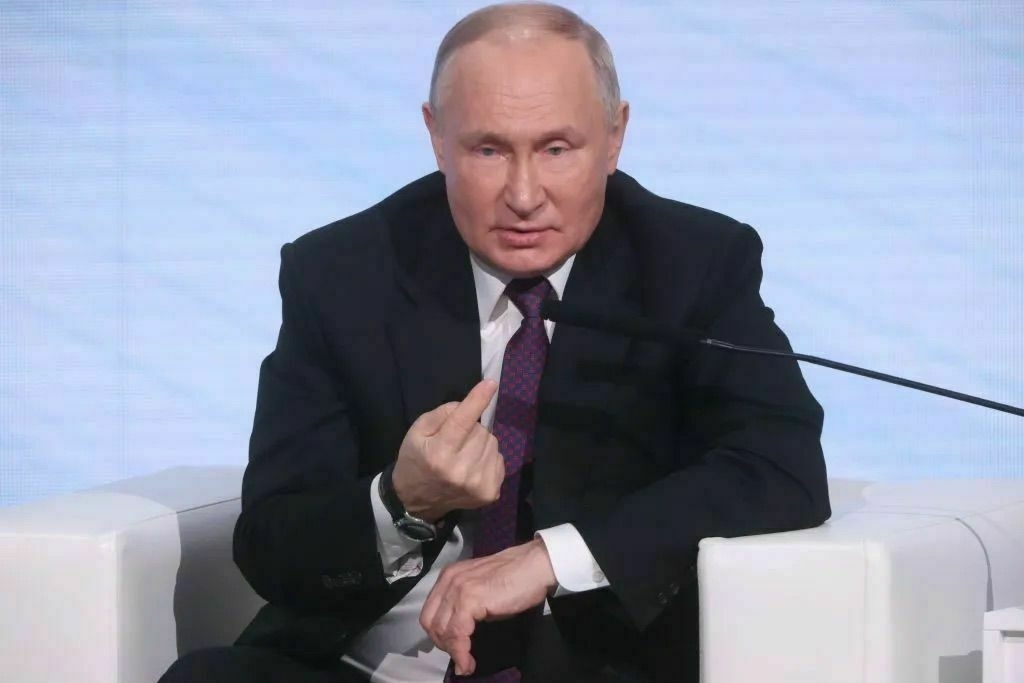
-
Trump privately praises Ukraine's drone strike on Russian bombers as 'badass,' Axios reports
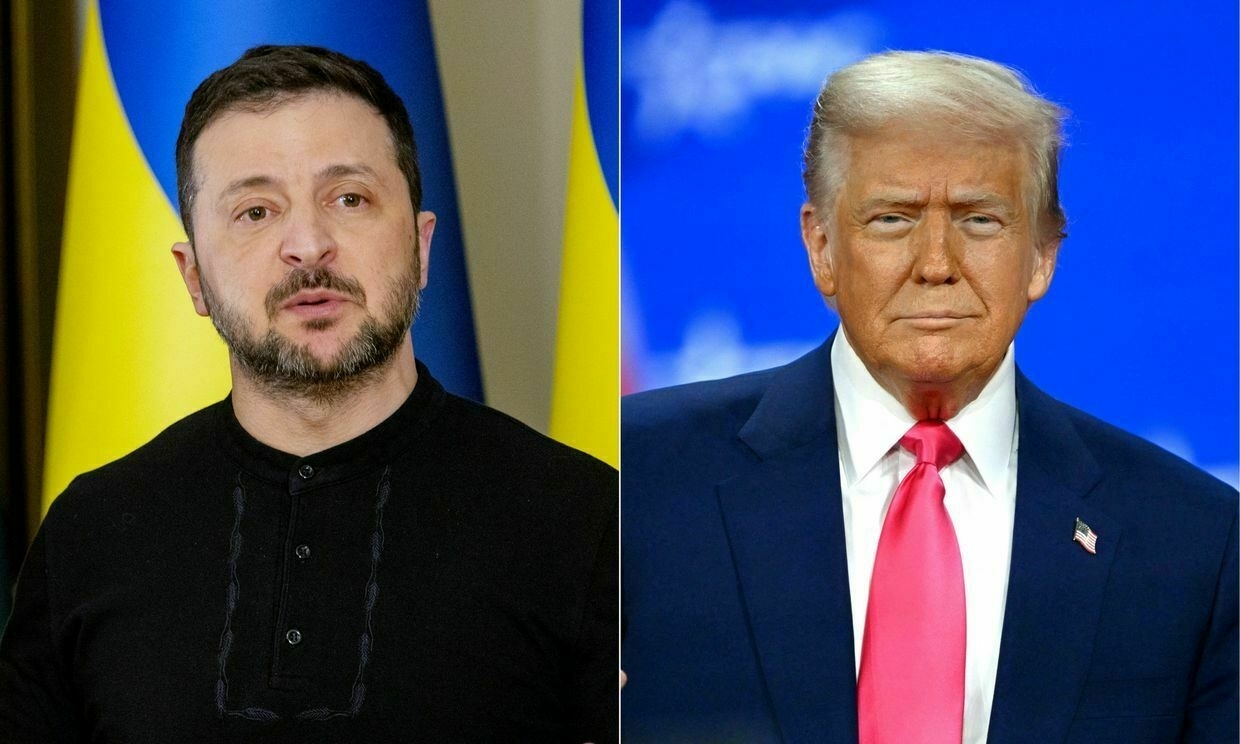
U.S. President Donald Trump privately described Ukraine’s drone strike on Russian strategic bombers as “strong” and “badass,” Axios reported June 5, citing sources familiar with his reaction.
The operation, carried out by Ukraine’s Security Service (SBU) on June 1, targeted four Russian air bases deep inside the country. According to Kyiv, 41 aircraft were struck in the raid, causing an estimated $7 billion in damage.
The targeted bases reportedly housed Tu-95 and Tu-22M3 bombers — long-range platforms frequently used to launch cruise missiles at Ukrainian cities amid Russia’s full-scale war. While Trump has remained silent in public about the attack, he reportedly expressed enthusiasm behind closed doors.
“He thought it was badass,” one source told Axios.
A second said Trump told a confidant the strike was “pretty strong."
One of Trump’s advisers reportedly likened the situation to a small but aggressive force managing to hurt a more powerful opponent, using a metaphor about a “chihuahua” attacking “a much bigger dog."
On a TruthSocial post on June 4, Trump confirmed he had discussed the drone attack directly with Russian President Vladimir Putin during a phone call lasting over an hour.
“We discussed the attack on Russia’s docked airplanes by Ukraine, and also various other attacks that have been taking place by both sides,” Trump wrote.
Kremlin spokesperson Dmitry Peskov later confirmed that Putin had informed Trump of Russia's intent to respond to Ukraine's attack, according to state-run media outlet TASS.
U.S. Special Envoy for Ukraine Keith Kellogg earlier warned that the operation could lead to escalation.
"When you attack an opponent's national survival system — their nuclear triad — the risk level goes way up," Kellogg told Fox News on June 3.
Ukrainian officials say the drone assault — codenamed Operation Spiderweb — took 18 months to plan. SBU sources claim the attack was carried out using 117 drones launched from trucks inside Russian territory.
The Kyiv Independent could not independently verify the scale of the damage.
While Russian propagandists have attempted to downplay the strike, Putin himself has yet to make a public statement.
Operation Spiderweb marks one of the most far-reaching Ukrainian operations of the war and underscores Kyiv's expanding capacity to strike targets far beyond the front lines.
Putin rejects Zelensky’s call for peace talks, accuses Ukraine of deadly bridge attack in RussiaRussian President Vladimir Putin on June 4 accused Ukraine of being governed by a terrorist regime that deliberately targets civilians and claimed it is continuing to lose the war. He rejected the possibility of holding talks.The Kyiv IndependentOlena Goncharova
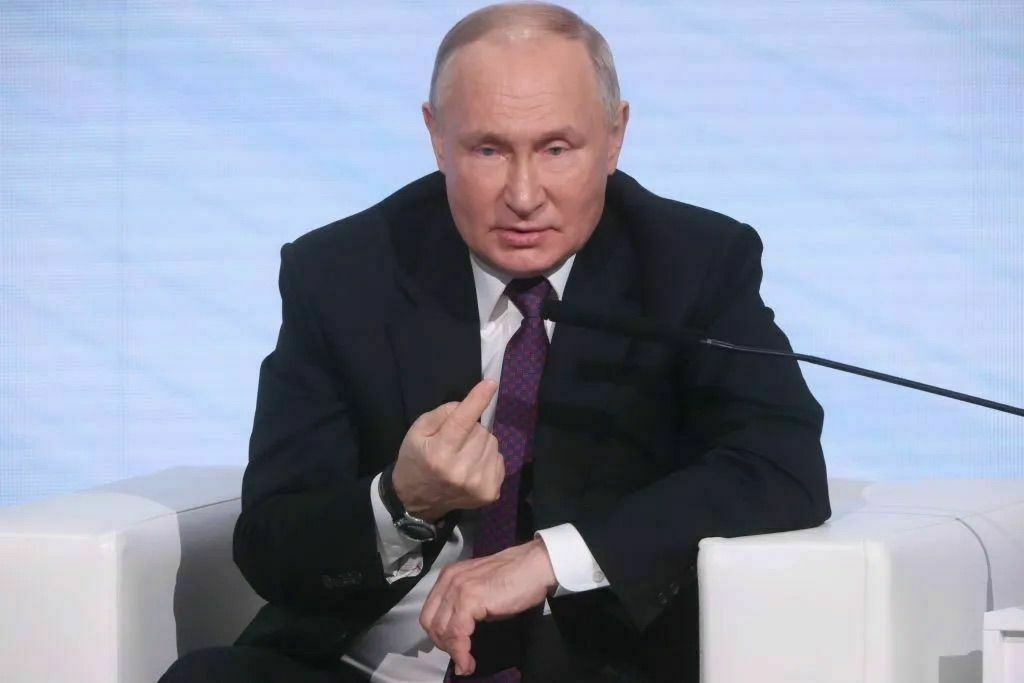
-
UK announces unprecedented military aid package for Ukraine with 100,000 drones and enhanced training support
The United Kingdom has announced a new military aid package for Ukraine. The Ukrainian Defense Minister, Rustem Umerov, described the package as unprecedented in size. This aid will be crucial in saving lives and bolstering the Ukrainian military, according to a post by the Ministry of Defense on Telegram.
As part of this aid package, the Ukrainian Armed Forces will receive 100,000 drones by the end of 2025. This number is ten times greater than last year’s support. Investment in drone production will reach a record £350 million.
Additionally, Britain is supplying 140,000 artillery shells, which have already been delivered to Ukraine. A further £247 million has been allocated for training the Ukrainian military. The total military support from the UK in 2025 is projected to be £4.5 billion.
Umerov expressed gratitude to the UK and Defense Secretary John Healey for their unwavering solidarity with Ukraine.
The UK plans to invest at least £3 billion (almost $3.7 billion) in advancing its defense industry, enhancing air defense systems, and constructing new munitions production facilities.
-
Fact Check: FAKE Image Does Not Show Actual Damaged Russian TU-95 Bombers -- Signs Of AI Generated Content
Does a viral image show three actual Russian TU-95 bombers and an unknown fourth plane damaged in a Ukrainian drone strike? No, that's not true: Some detection tools say the image shows strong evidence of being forged or synthesized using artificial intelligence. The image also contains tell-tale details that do not match with other photographs of such planes, including elements on the wing that have the wrong shape and propellers sitting at unnatural angles.
An example of the viral image appeared in a post on X (archived here) published on June 5, 2025 with a comment that read:
that will not buff out...
This is what the image looked like
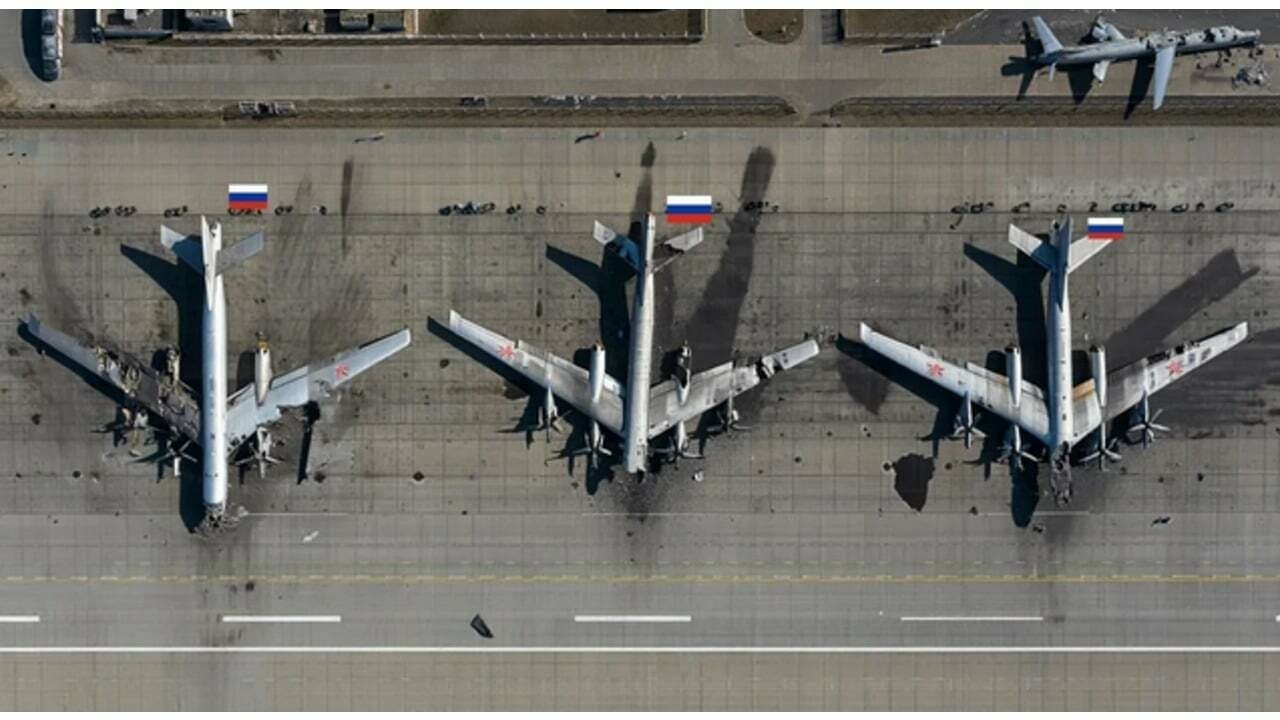
(Image source: screenshot of @secretsqrl123 on X)
AI detection tool Hive said it was only 13% likely the image was generated using AI.
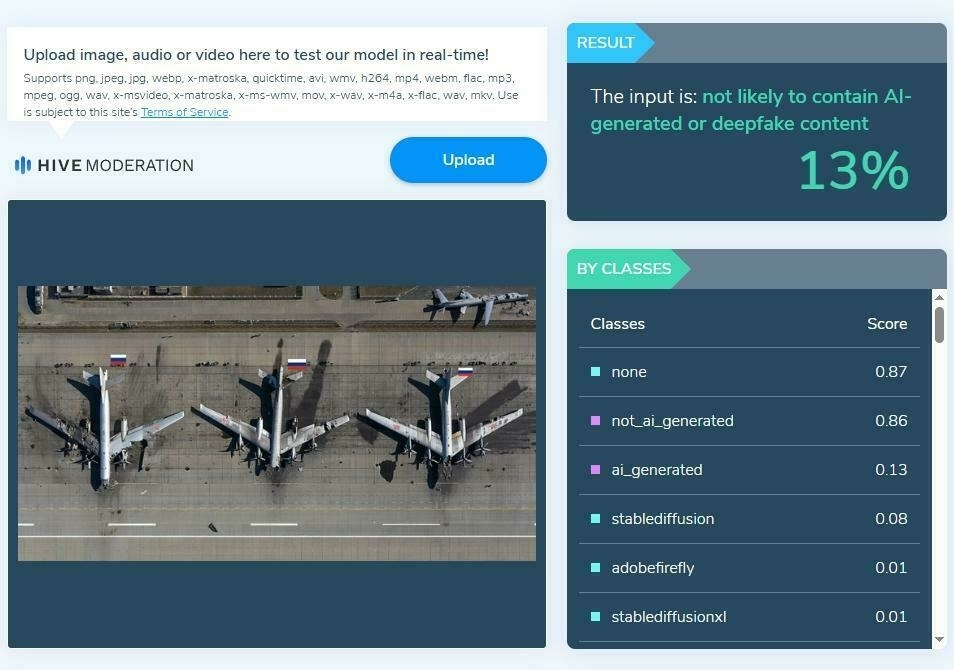
However Lead Stories also ran the image through AI detection tools at the University at Buffalo's Media Forensic Lab, which focuses on "the forensic analysis of digital media." Together, these tools are called the DeepFake-O-Meter. At least two of the tools (GLLF and HIFI) concluded it was '0.9999904632568359' probable out of 1 (archived here) and 99.99 probable out of 100 (archived here) that the image was fake.
Several clues in the image also revealed it was probably generated using AI or other digital tools, for example a weirdly sideways tilted plane in the top right corner with too many wings and tailfins sticking out at odd angles, deformed red stars with too many points on the wings of the bombers and propellers looking like they are tilted upwards (when viewed top-down the blades should not be visible as a cross or star-like shape; a TU-95 has dual propellers that should look like roughly parallel lines from the top). But the most telling detail are the "anti-shock bodies" that normally sit behind the two inner engines on the rear side of the wings: in the image they appear to end in some kind of shiny, round element instead of the pointy shape they have on actual TU-95 bombers.
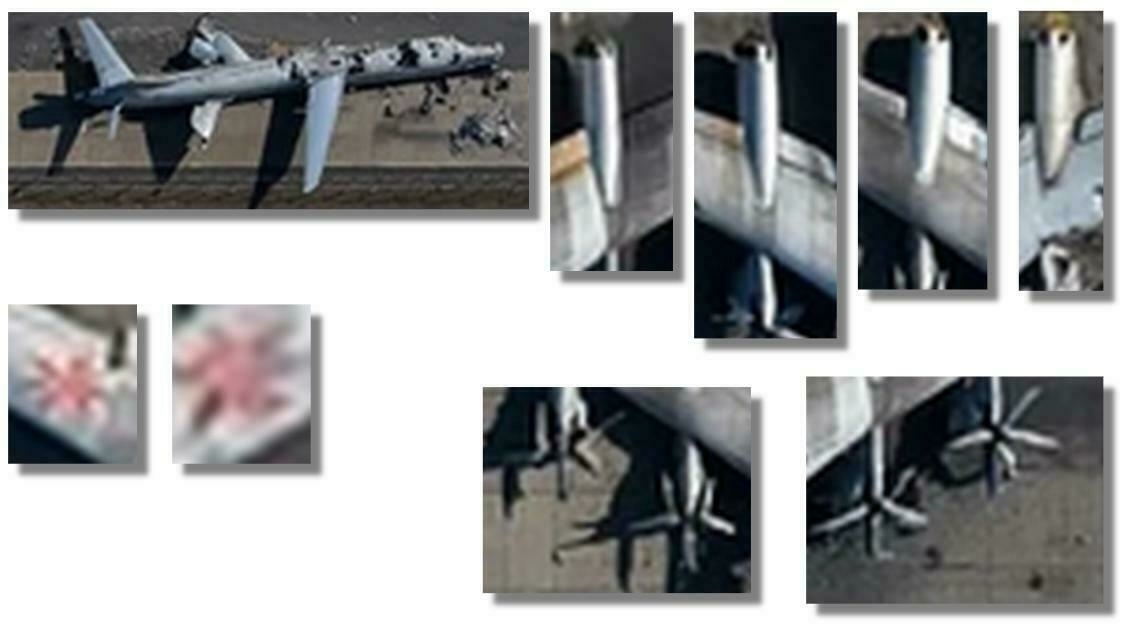
For reference, compare to this top-down image of an actual TU-95, rotated 90 degrees from the original by Lead Stories for easier comparison:
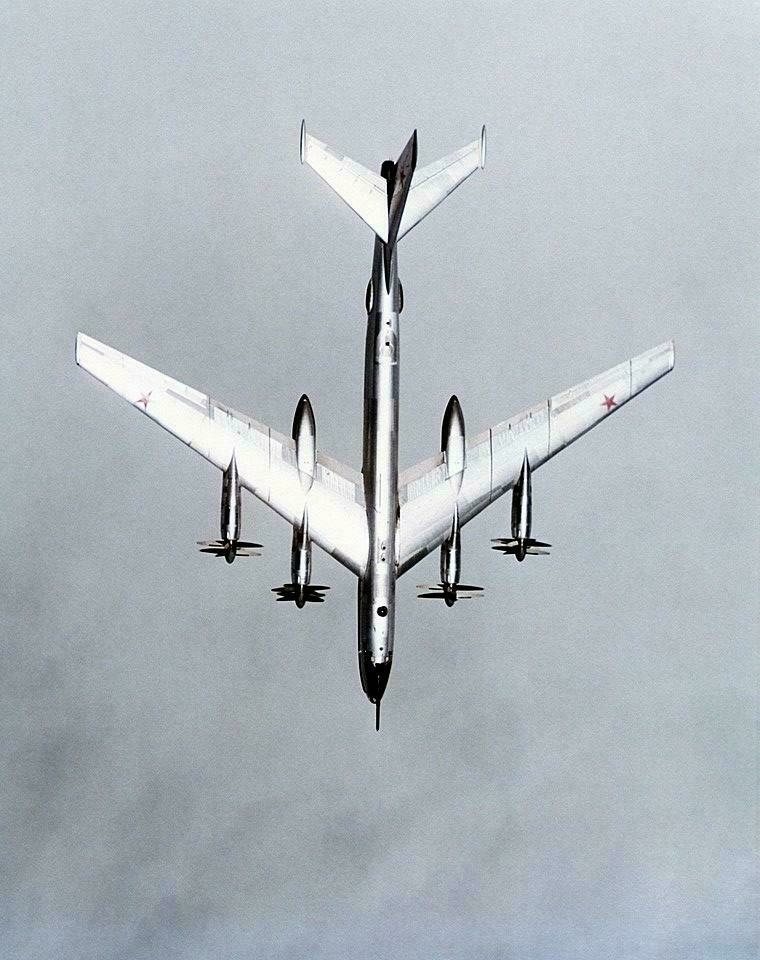
(Image source: See page for author, Public domain, via Wikimedia Commons)
-
Ukraine strikes Russian missile base in Bryansk Oblast, damages Iskander launchers, Ukrainian military says
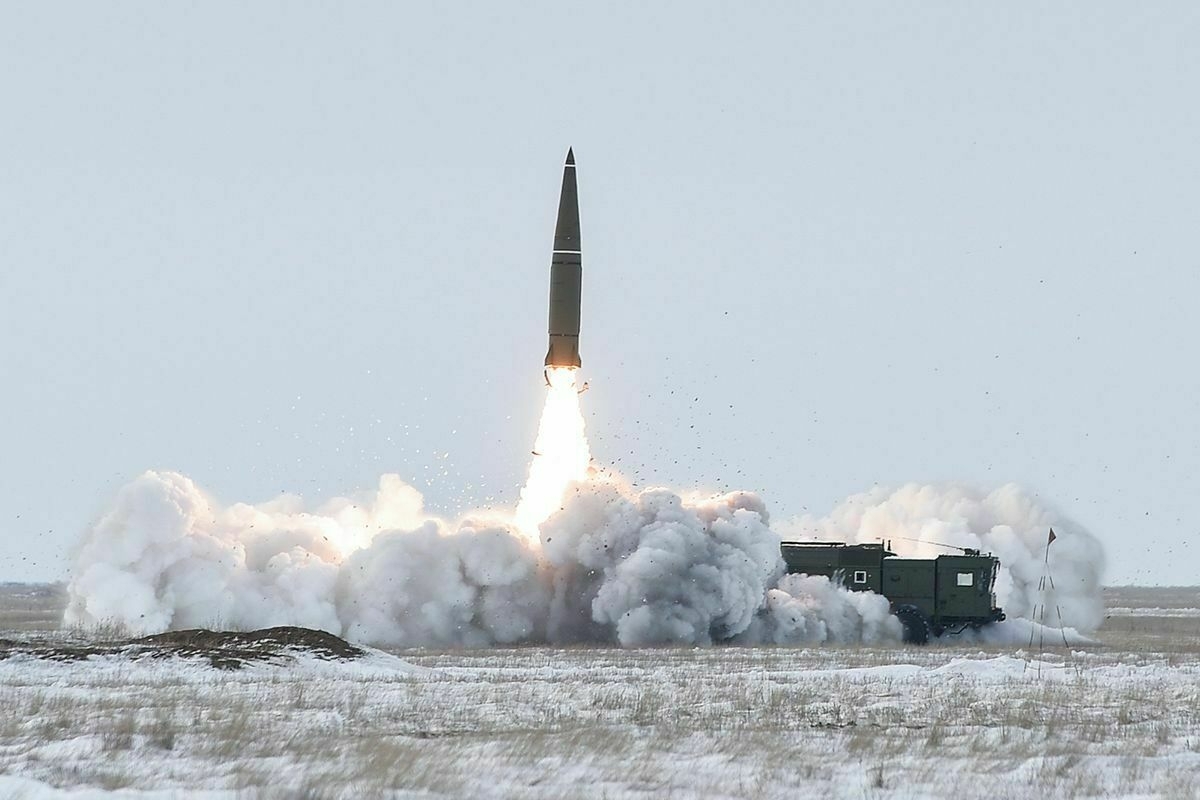
Ukrainian forces launched a missile strike on June 5 targeting a concentration of Russian missile troops near the city of Klintsy in Russia’s Bryansk Oblast, the General Staff of Ukraine’s Armed Forces reported.
The strike reportedly destroyed one Iskander missile launcher and seriously damaged two others. The targeted unit, part of Russia’s 26th Missile Brigade, had attempted to fire on Ukrainian territory — likely aiming at Kyiv — before it was hit, according to the military.
“Thanks to effective reconnaissance and the coordinated efforts of the Armed Forces and the Security Service of Ukraine, the targets were successfully hit,” the General Staff said.
The agency added that there were no civilian casualties, and assessments of Russian losses are ongoing.
The Iskander is a short-range ballistic missile system used by Russia for precision strikes against military and infrastructure targets.
With a range of up to 500 kilometers (some 311 miles) and the ability to carry conventional or nuclear warheads, the system remains a key component of Russia’s tactical missile forces.
0:00/Ukrainian forces launched a missile strike targeting a concentration of Russian missile troops in Russia’s Bryansk Oblast on June 5, 2025. (General Staff / Telegram) Bryansk Oblast lies just northeast of Ukraine’s Chernihiv and Sumy Oblasts, making it one of the key Russian regions bordering northern Ukraine.
The strike came as part of Ukraine’s broader effort to degrade Russia’s offensive capabilities.
On the same night, Russia launched 103 drones — including Iranian-designed Shahed suicide drones — and one Iskander-M ballistic missile against Ukrainian territory.
Targeting missile assets there may disrupt Russia’s ability to launch precision strikes, particularly in advance of an anticipated new summer offensive.
Putin rejects Zelensky’s call for peace talks, accuses Ukraine of deadly bridge attack in RussiaRussian President Vladimir Putin on June 4 accused Ukraine of being governed by a terrorist regime that deliberately targets civilians and claimed it is continuing to lose the war. He rejected the possibility of holding talks.The Kyiv IndependentOlena Goncharova
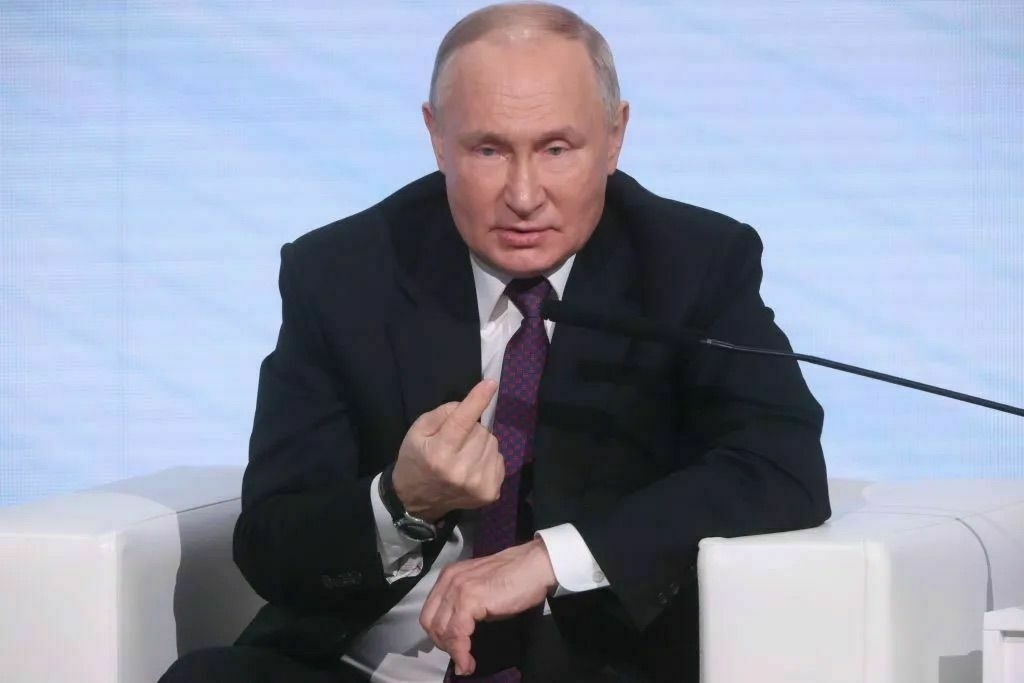
-
Russia impersonating Ukraine's security service to recruit saboteurs, SBU warns
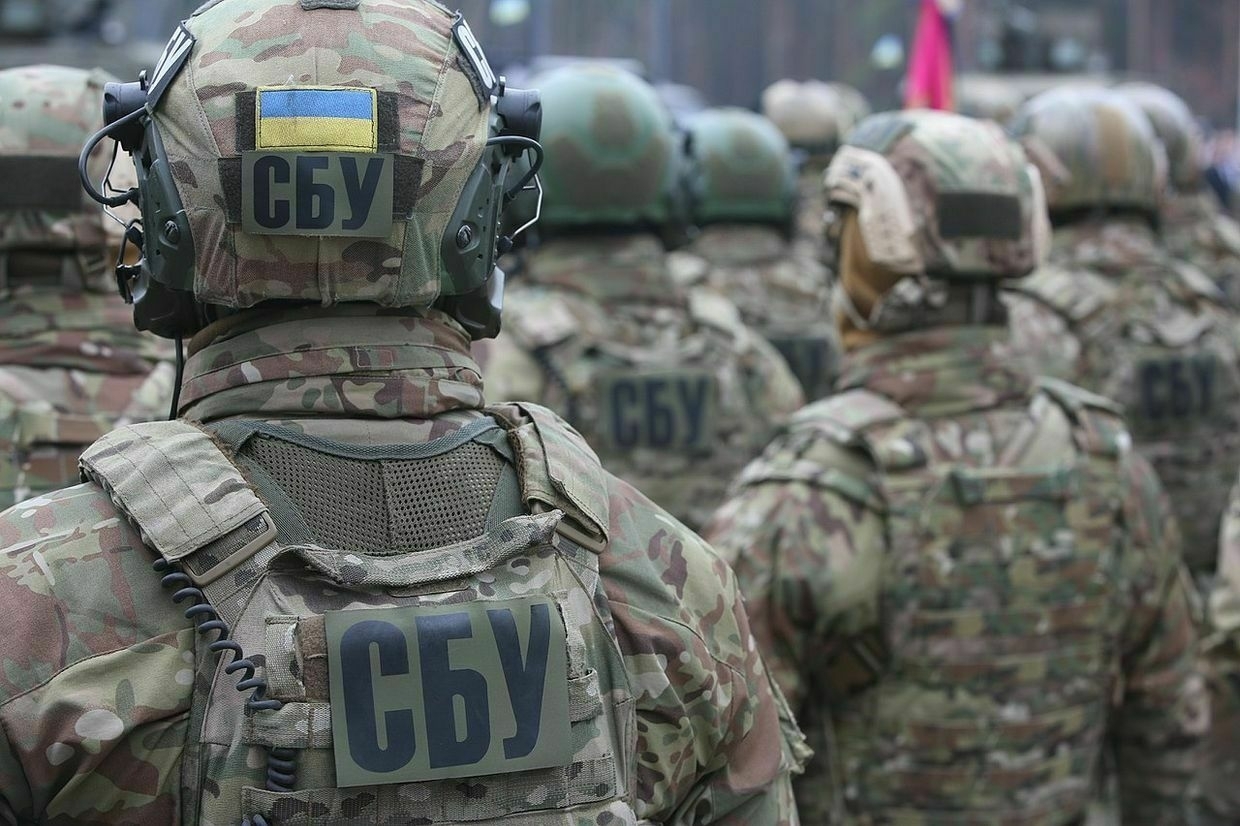
Russian intelligence operatives are impersonating Ukraine’s Security Service (SBU) in an expanded effort to recruit Ukrainian civilians for sabotage operations, the SBU said June 5.
The new tactic, described by the agency as a “false flag” operation, involves contacting Ukrainian citizens while posing as SBU officials conducting official inquiries. The SBU said this marks a notable escalation and shift in Russia’s recruitment strategy.
“This is a so-called special operations technique known as ‘false flag,’ which has not been used by Russian invaders until now, but which they are actively trying to apply now,” the agency said in a statement.
According to the SBU, targeted individuals typically receive messages via instant messaging apps, instructing them to report to an “SBU investigator” regarding fabricated criminal charges.
That “assistance,” however, comes with strings attached. Victims are pressured into carrying out tasks ranging from surveillance and courier duties to transferring funds. In more serious cases, they are asked to purchase chemicals for explosive devices, set fire to Ukrainian military vehicles or conduct sabotage against government buildings.
“In some cases, Russian curators also demand that malicious software be installed on the victim’s phone, allowing them to monitor activity and location in real time,” the SBU statement said.
While earlier recruitment efforts focused largely on teenagers, the SBU warned that elderly Ukrainians are now increasingly being targeted. The agency said it has disrupted several of these operations in recent weeks but did not provide specific examples.
Since the start of Russia’s full-scale invasion, Ukrainian officials say the Kremlin has stepped up intelligence-gathering and subversive activity inside Ukraine, with particular focus on coercing civilians into supporting reconnaissance and sabotage efforts.
Putin rejects Zelensky’s call for peace talks, accuses Ukraine of deadly bridge attack in RussiaRussian President Vladimir Putin on June 4 accused Ukraine of being governed by a terrorist regime that deliberately targets civilians and claimed it is continuing to lose the war. He rejected the possibility of holding talks.The Kyiv IndependentOlena Goncharova
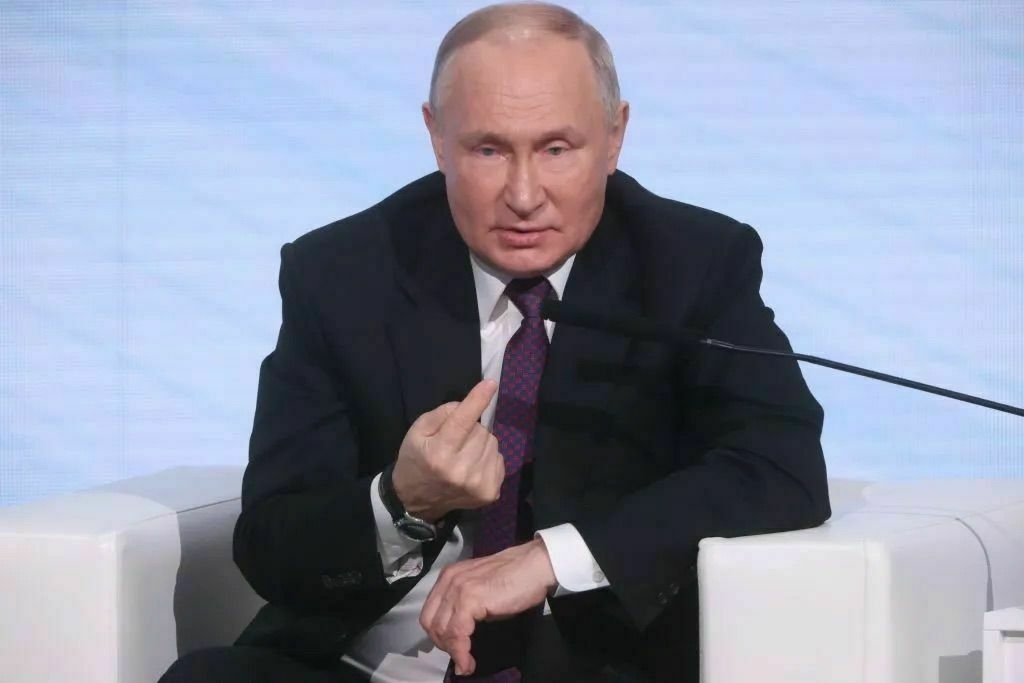
-
8 killed, 46 injured in Russian attacks on Ukraine over past day
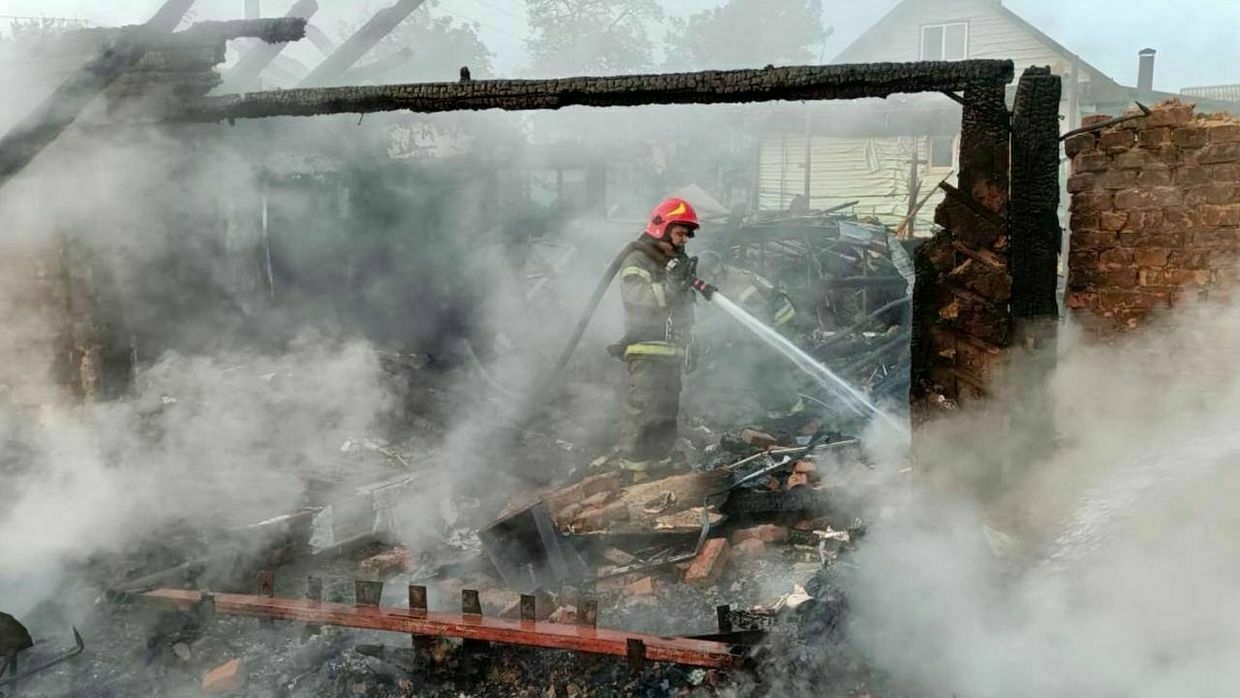
At least eight civilians were killed and 46 others wounded in Russian attacks across Ukraine over the past day, regional authorities reported on June 5.
According to Ukraine’s Air Force, Russia launched 103 drones overnight, including Iranian-designed Shahed-type suicide drones and one Iskander-M ballistic missile.
Air defenses intercepted 74 drones, while another 46 dropped off radars — likely used as decoys to overwhelm Ukrainian systems. The attack was repelled using aviation, electronic warfare units, mobile fire groups, and anti-aircraft missile systems.
Chernihiv Oblast suffered the deadliest strike of the day, where five people were killed and six others wounded after Russian drones struck residential areas in the city of Pryluky, Governor Viacheslav Chaus reported.
In Donetsk Oblast, one person was killed in Rodynske and five more injured across the region, Governor Vadym Filashkin said. The region remains a primary target of Russian artillery and air strikes amid ongoing ground assaults.
Kharkiv Oblast recorded 20 injuries from Russian attacks, including four children in the city of Kharkiv — a 7-year-old boy, a 9-year-old girl, and two 13-year-old girls — Governor Oleh Syniehubov said. In Izium, a 38-year-old man was injured by the explosion of an unidentified object.
In Kherson Oblast, two people were killed and 10 others wounded, with Russia targeting residential neighborhoods and social infrastructure, Governor Oleksandr Prokudin reported.
In Sumy Oblast, two civilians were wounded after Russian forces used drones and KAB guided bombs to strike civilian areas, the regional Military Administration said.
In Mykolaiv Oblast, Russia hit a civilian minibus with a first-person-view (FPV) drone, injuring a 70-year-old man, Governor Vitalii Kim said.
In Zaporizhzhia Oblast, two people were wounded as Russian troops carried out 428 strikes on 14 settlements over the past 24 hours, Governor Ivan Fedorov reported.
Kyiv has consistently urged Moscow to accept a Western-backed 30-day ceasefire proposal, which Ukrainian officials see as a prerequisite for broader peace talks. The Kremlin has rejected the proposal thus far.
Putin rejects Zelensky’s call for peace talks, accuses Ukraine of deadly bridge attack in RussiaRussian President Vladimir Putin on June 4 accused Ukraine of being governed by a terrorist regime that deliberately targets civilians and claimed it is continuing to lose the war. He rejected the possibility of holding talks.The Kyiv IndependentOlena Goncharova
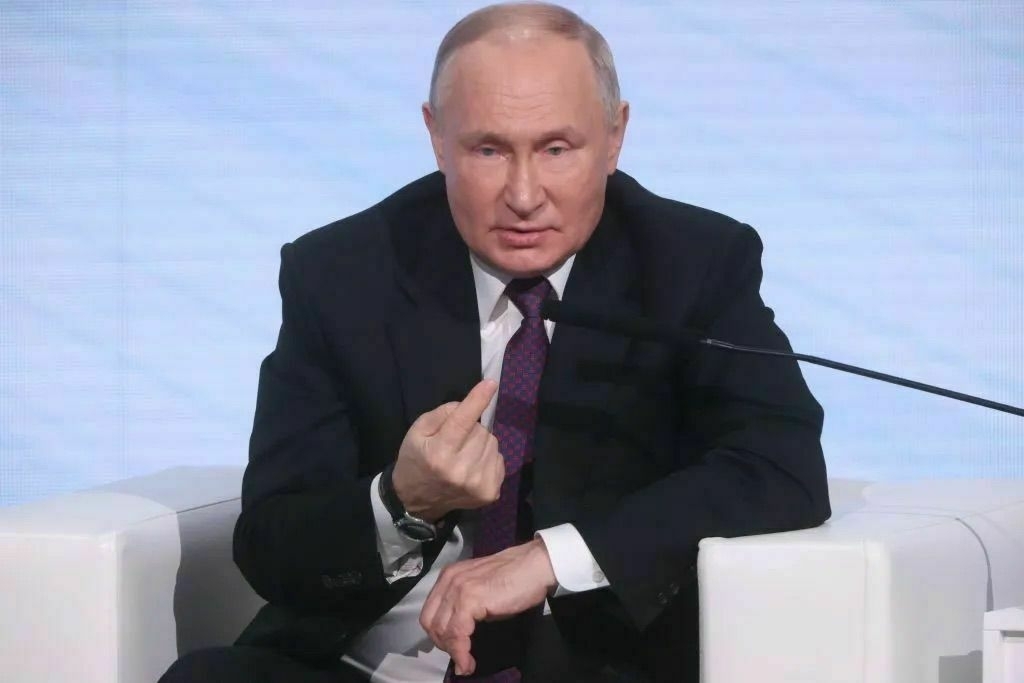
-
Kim Jong Un reaffirms 'unconditional' support for Russia's war in Ukraine during Shoigu visit
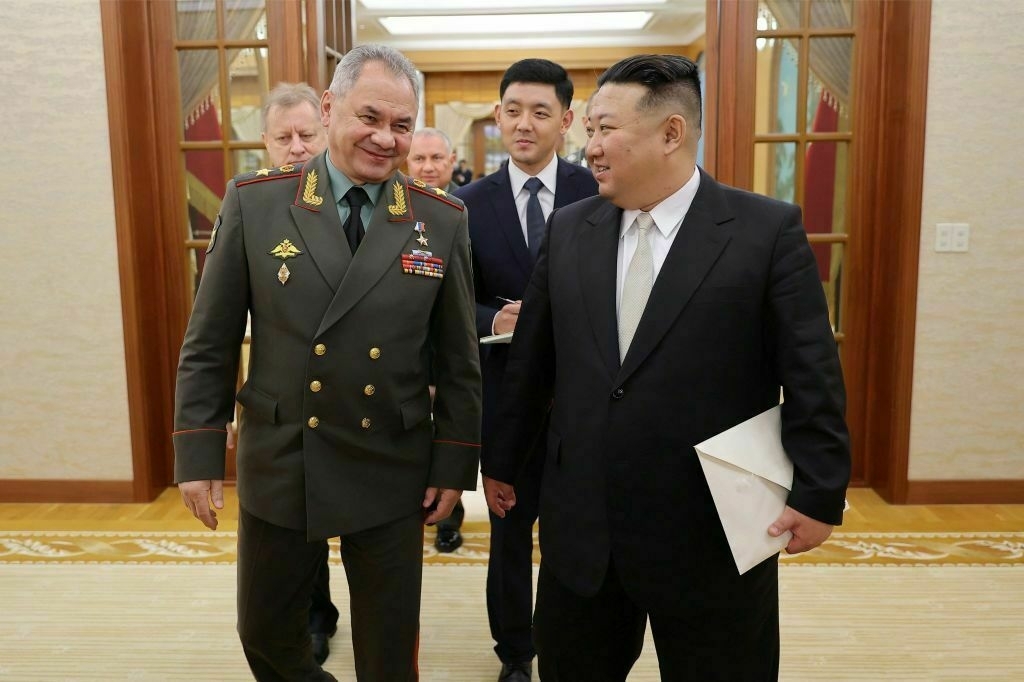
North Korean leader Kim Jong Un reaffirmed his country’s full support for Russia’s war against Ukraine during a meeting with Russian Security Council Secretary Sergei Shoigu in Pyongyang, North Korean state news agency KCNA reported on June 5.
Kim reportedly told Shoigu that North Korea “unconditionally supports the stand of Russia and its foreign policies.” He also emphasized Pyongyang’s continued commitment to the 2024 Comprehensive Strategic Partnership Agreement signed with Moscow.
That treaty, signed by Kim and Russian President Vladimir Putin on June 19, 2024, commits both countries to provide assistance if either is attacked. Kim previously described the pact as having a “peaceful and defensive nature,” framing it as a formal security guarantee between the longtime partners.
Shoigu, on his second visit to Pyongyang since being appointed secretary of the Russian Security Council, reportedly discussed battlefield developments in Russia’s Kursk Oblast, including the role of North Korean soldiers deployed in the region.
According to the Russian Security Council’s official readout, the two sides discussed “perpetuating the memory of the feat of Korean soldiers."
Officials estimate that up to 12,000 North Korean troops have been deployed to Russia’s Kursk Oblast since last fall to counter Ukraine’s cross-border incursion launched in August 2024.
President Volodymyr Zelensky previously reported that North Korean forces fighting for Russia had suffered 4,000 casualties, with two-thirds of the losses being soldiers killed.
Shoigu, who served as Russia’s defense minister until his dismissal in May 2024, now oversees national security matters as secretary of the Russian Security Council.
The International Criminal Court (ICC) issued an arrest warrant for Shoigu on June 25, 2024, for his role in leading Russia’s war effort.
Putin rejects Zelensky’s call for peace talks, accuses Ukraine of deadly bridge attack in RussiaRussian President Vladimir Putin on June 4 accused Ukraine of being governed by a terrorist regime that deliberately targets civilians and claimed it is continuing to lose the war. He rejected the possibility of holding talks.The Kyiv IndependentOlena Goncharova
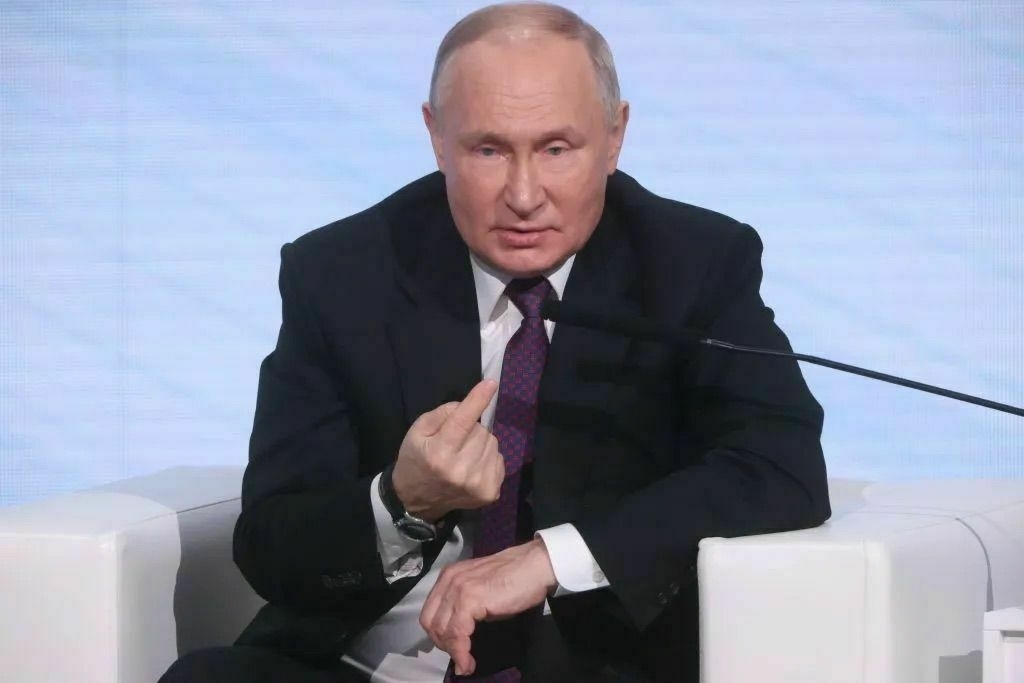
-
Ukraine, US plan to launch minerals investment fund by year's end
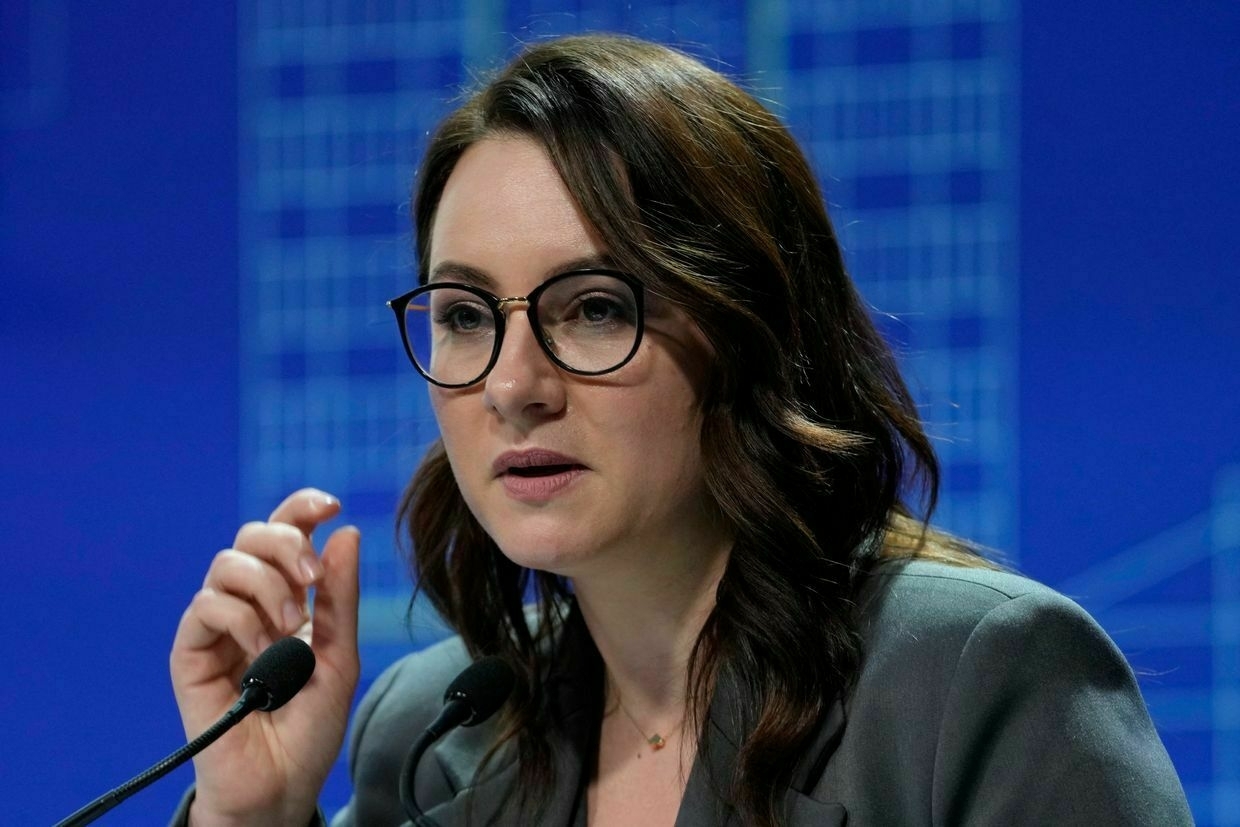
A joint Ukrainian-American investment fund tied to the countries' minerals agreement could begin operations by the end of 2025, Ukrainian Economy Minister Yulia Svyrydenko said June 4, according to Reuters.
The fund is a central component of the bilateral mineral resources agreement signed April 30, which grants the U.S. special access to projects developing Ukraine’s vast reserves of strategic minerals, including lithium, titanium and rare earth elements.
On June 4, Svyrydenko met in Washington with U.S. Treasury Secretary Scott Bessent and officials from the U.S. International Development Finance Corporation (DFC), which will serve as the American partner in the fund’s management.
“We discussed very concrete steps how to make this fund operational during this year,” Svyrydenko said in Washington. We plan to have the first board meeting of this fund in July, and we will discuss what will be the seed capital to start operating this fund."
The Reconstruction Investment Fund will be jointly managed by the DFC and Ukraine’s Public-Private Partnerships Agency. While both governments have withheld operational specifics, the fund is expected to serve as a long-term vehicle for Ukraine’s postwar recovery.
Kyiv launched the fund on May 23, after months of negotiations that strained ties with Washington. Negotiations led to the removal of controversial provisions Ukrainian officials feared could allow for exploitation of Ukraine’s resources.
The Ukrainian parliament approved the necessary amendments to the Budget Code on June 4 to allow for national revenue streams — including rent payments, subsoil permit proceeds, and production-sharing revenues — to be redirected to the fund.
President Volodymyr Zelensky signed the ratified minerals agreement on May 12. Two additional operational agreements were signed on May 13 to facilitate the fund’s launch.
Prime Minister Denys Shmyhal previously said that future U.S. military assistance could count as contributions to the fund, but clarified that past aid would not be included.
Despite lacking explicit security guarantees from the U.S. — a key priority for Kyiv — the agreement signals a new phase in U.S.-Ukraine economic cooperation.
Putin rejects Zelensky’s call for peace talks, accuses Ukraine of deadly bridge attack in RussiaRussian President Vladimir Putin on June 4 accused Ukraine of being governed by a terrorist regime that deliberately targets civilians and claimed it is continuing to lose the war. He rejected the possibility of holding talks.The Kyiv IndependentOlena Goncharova
